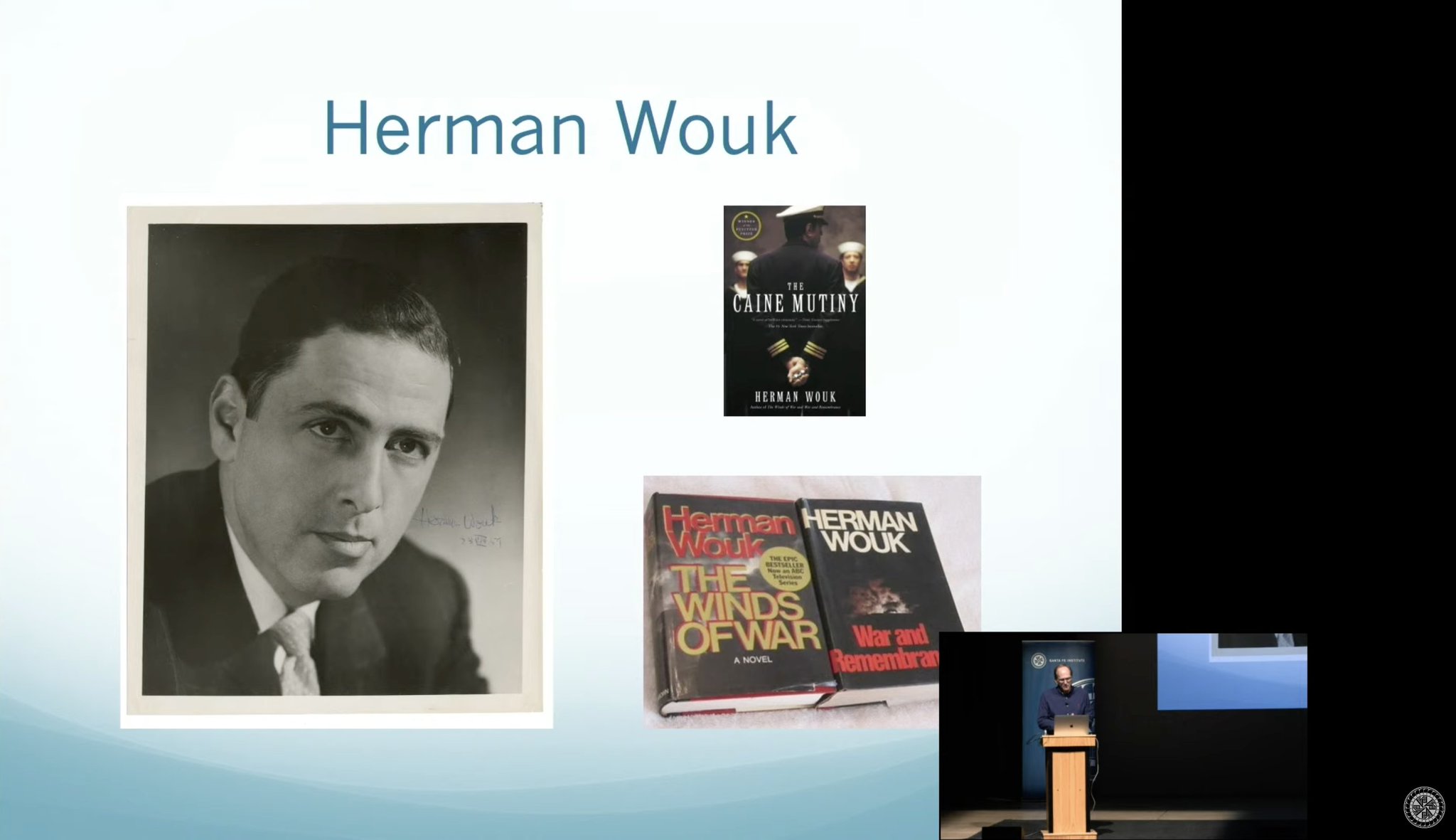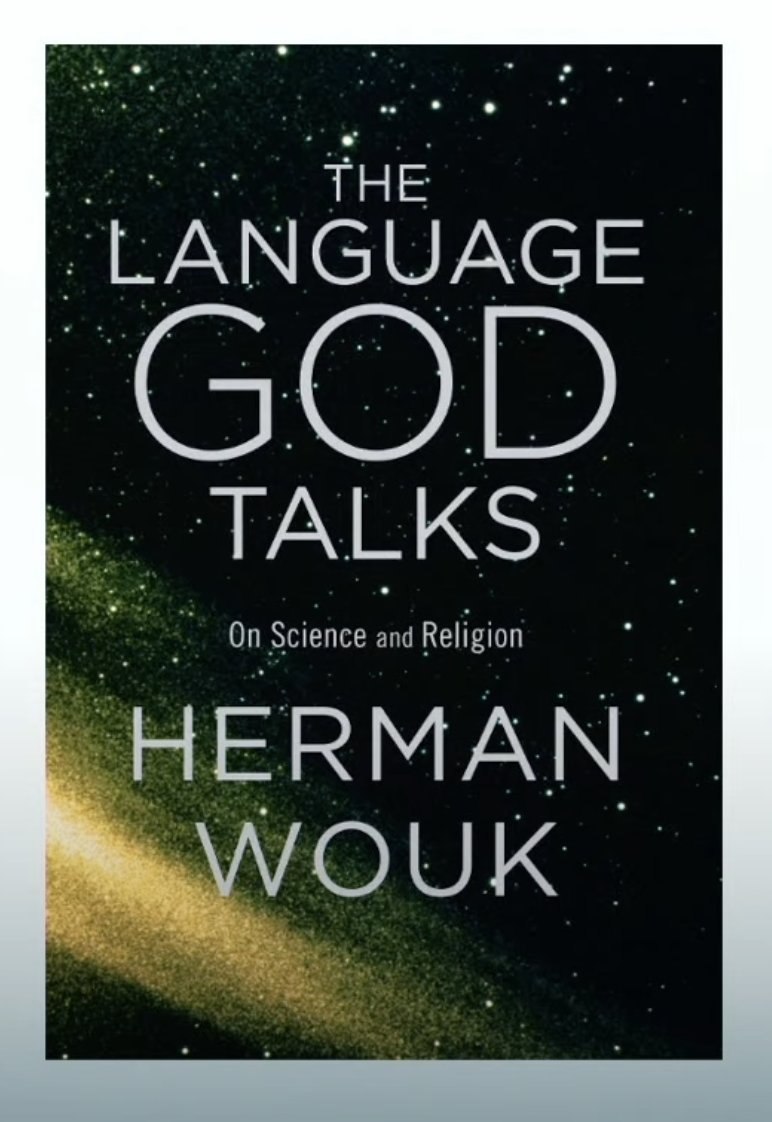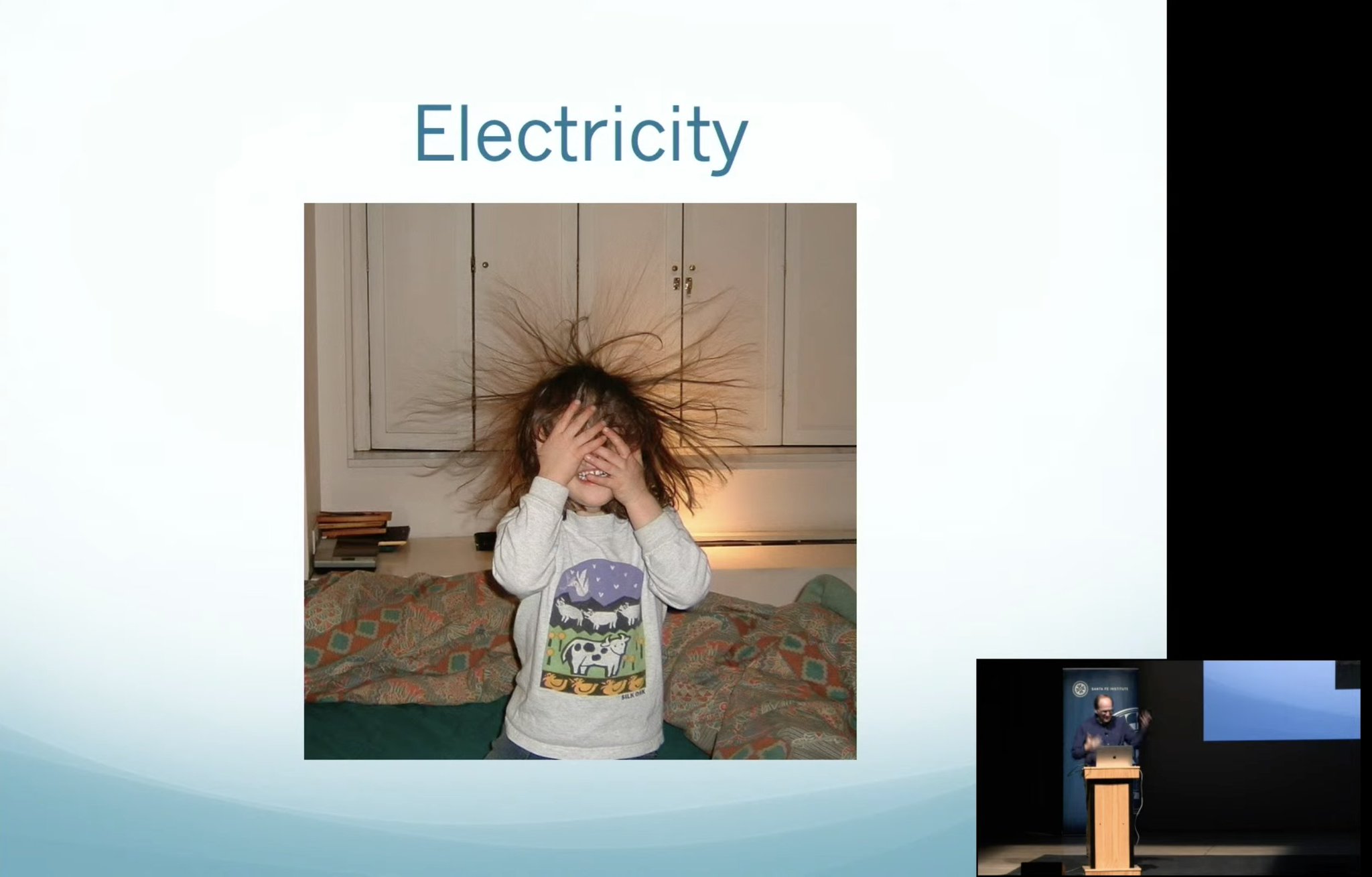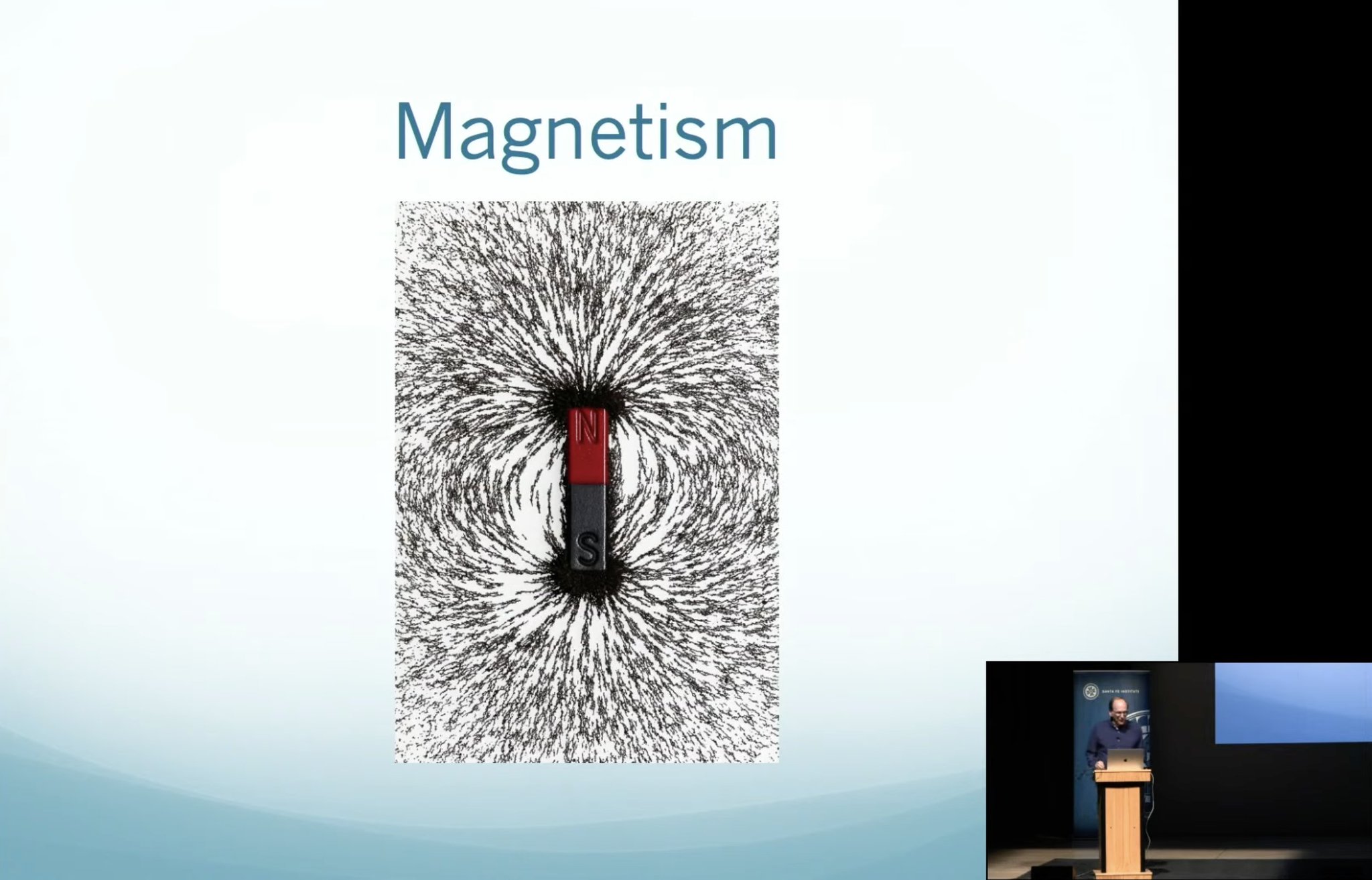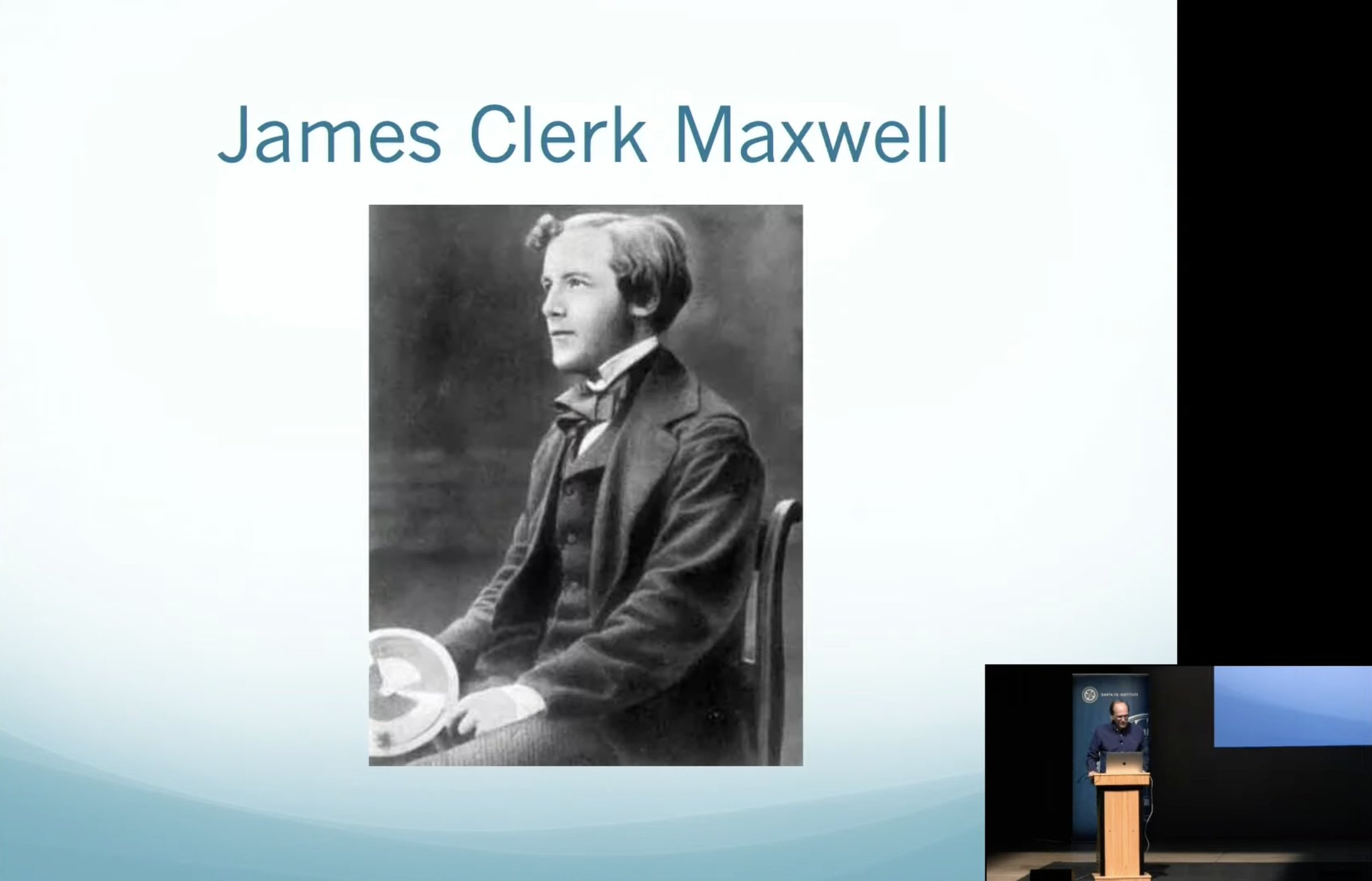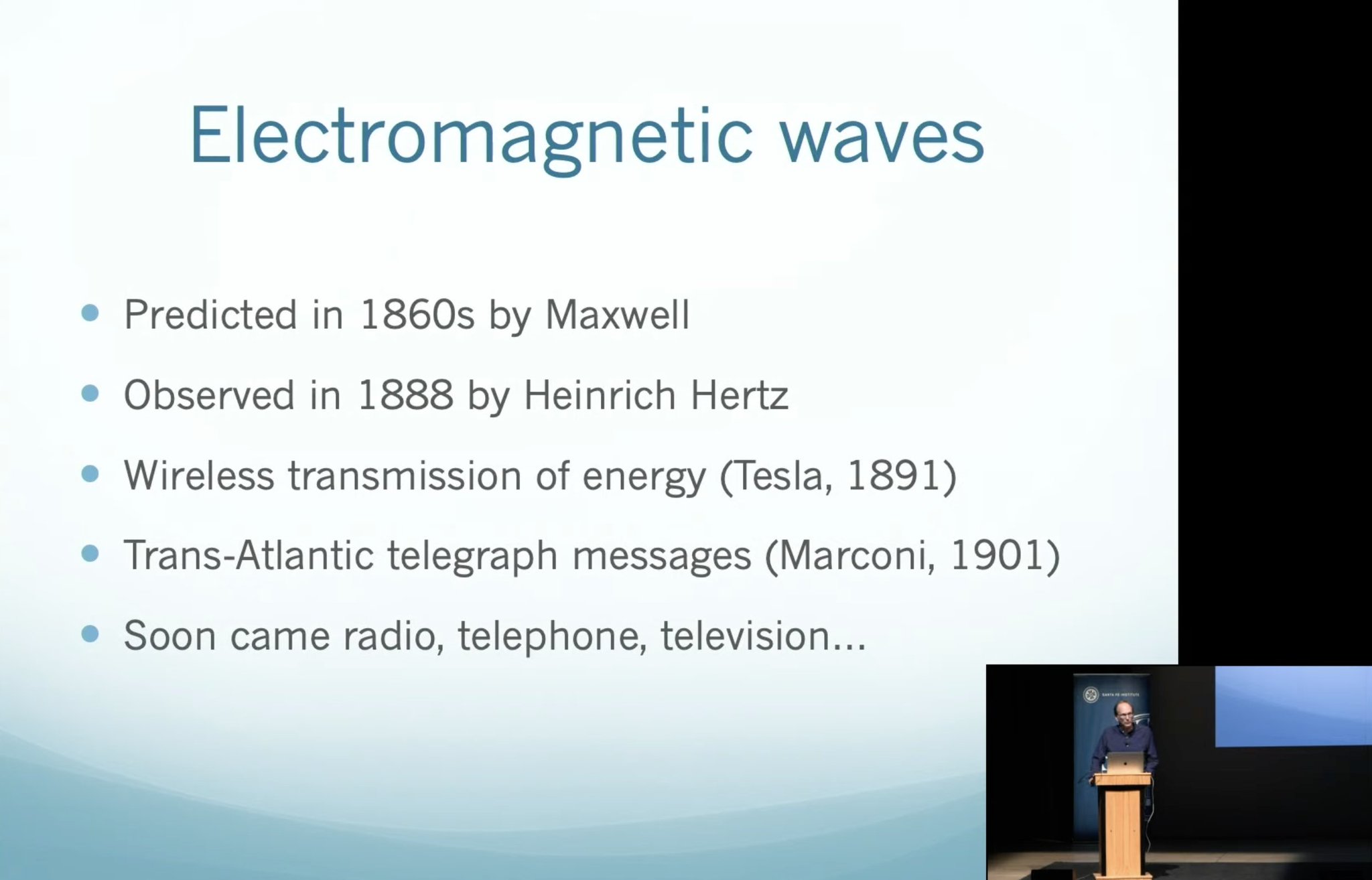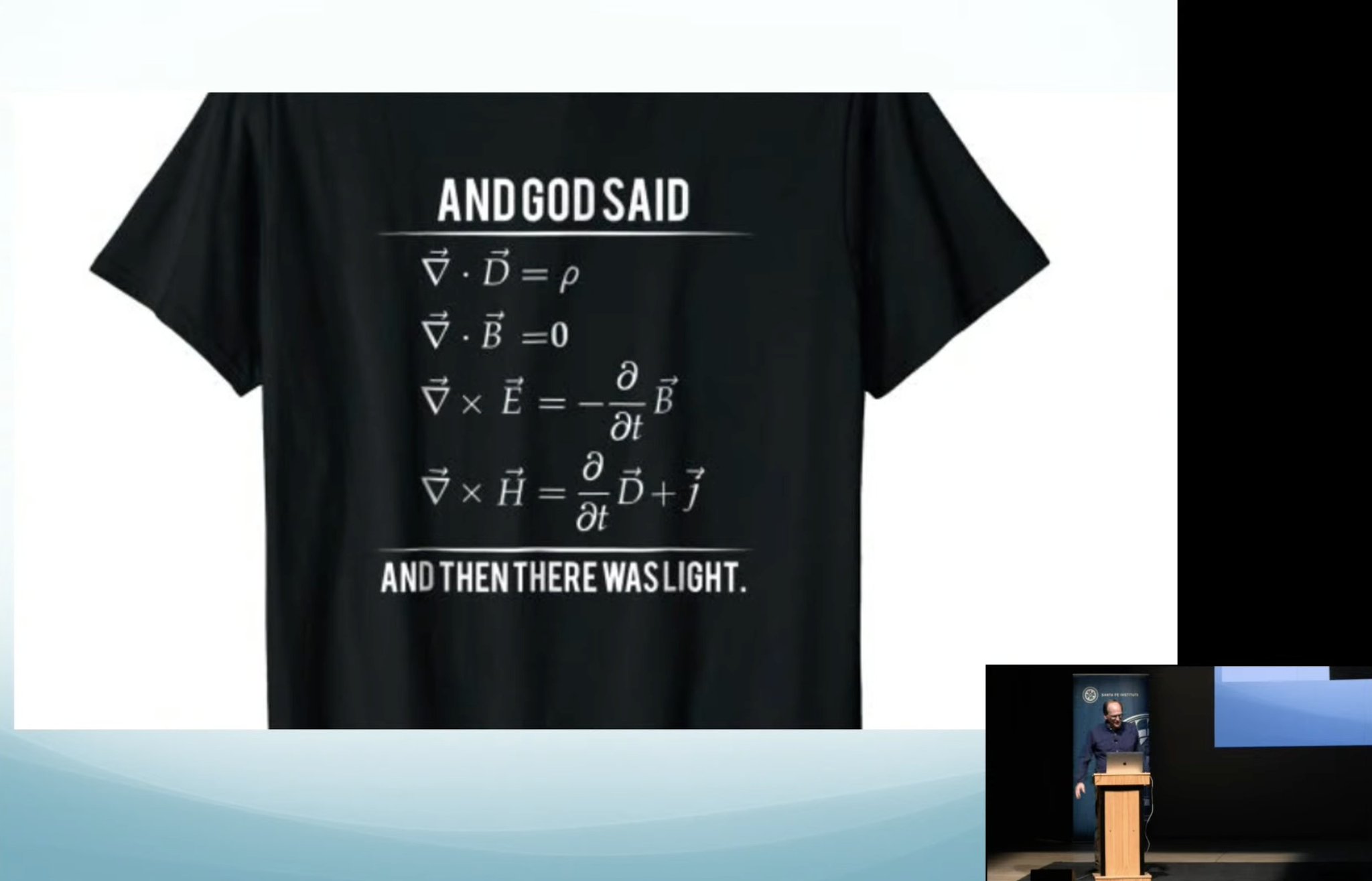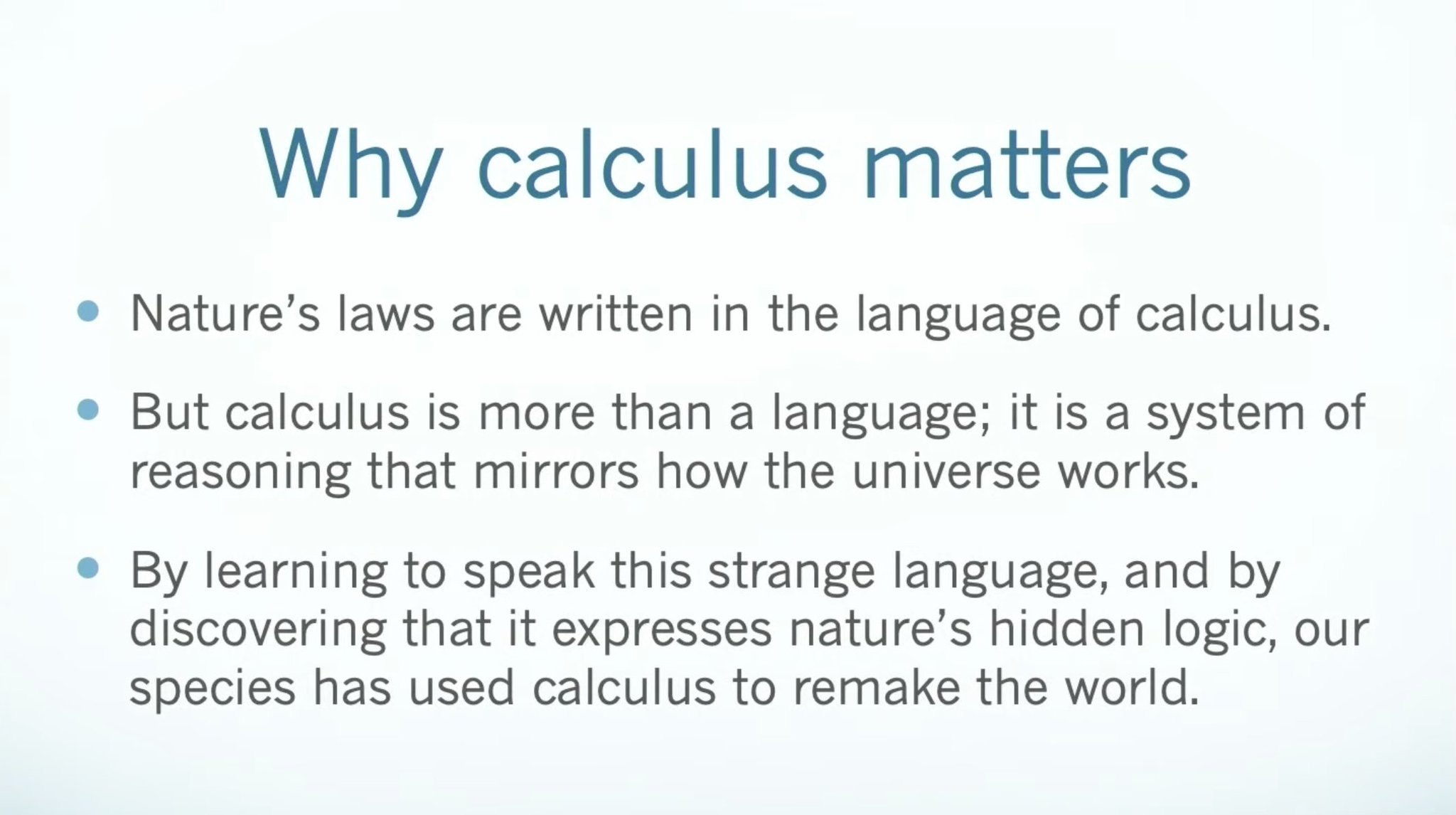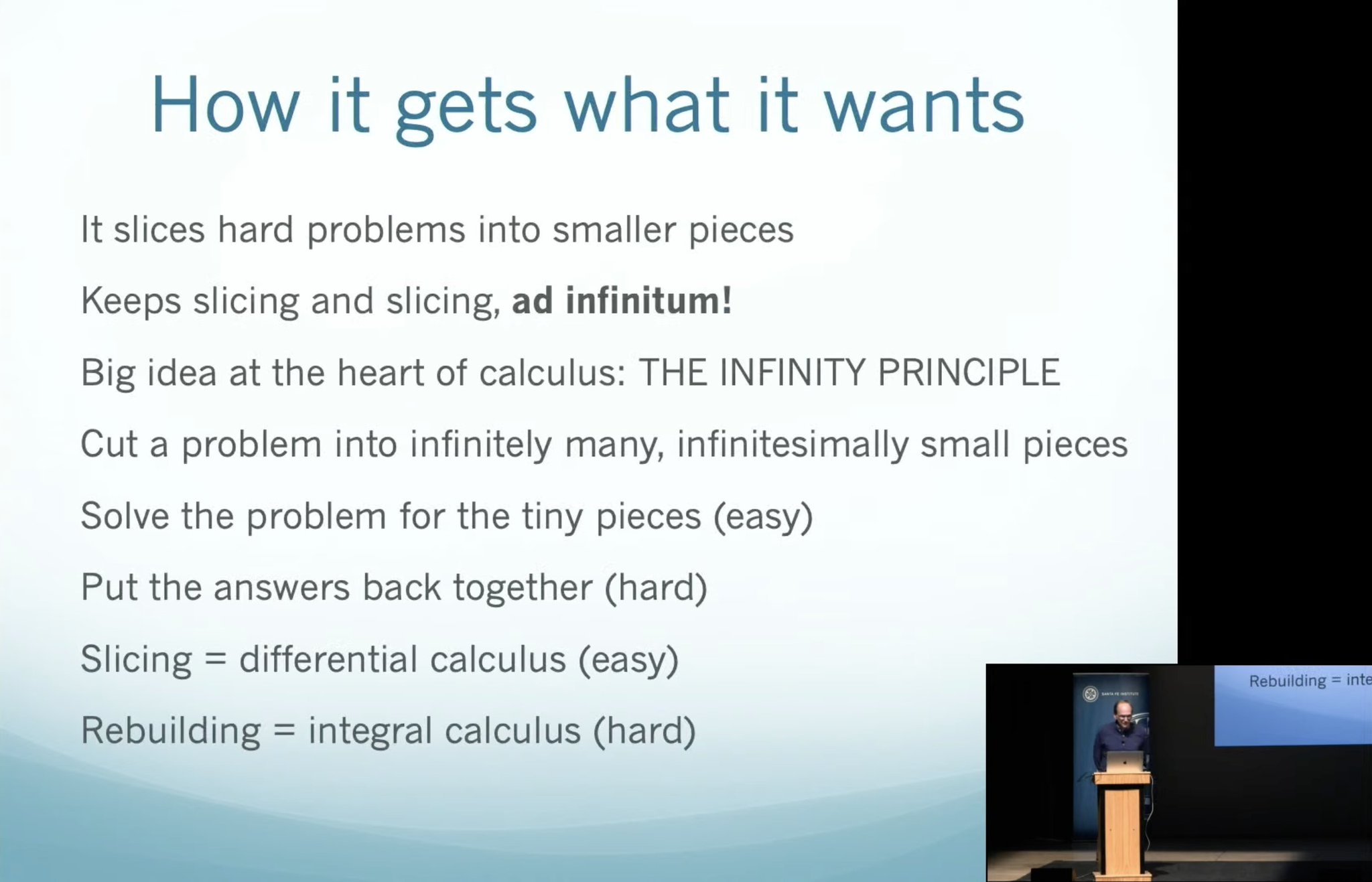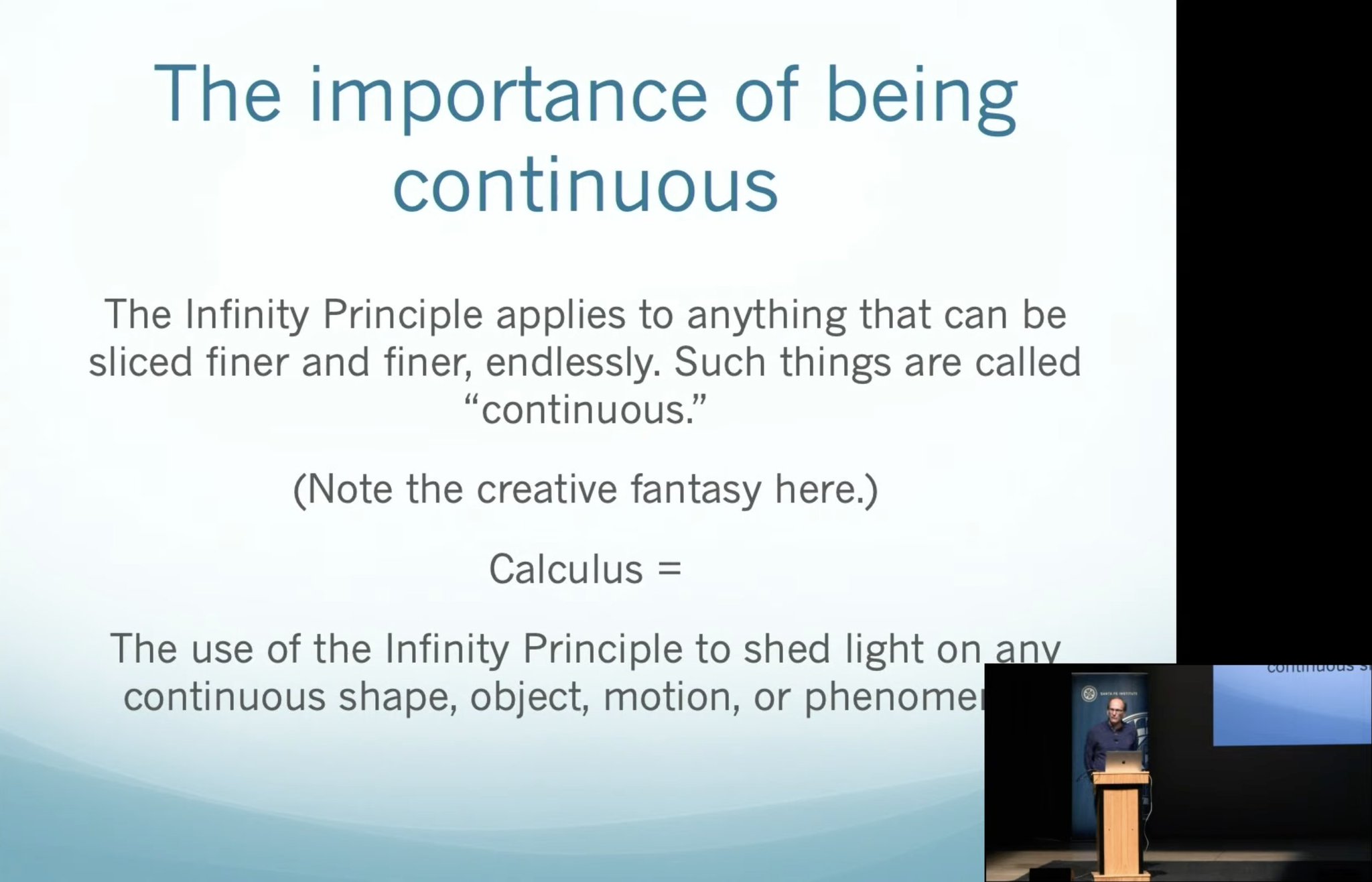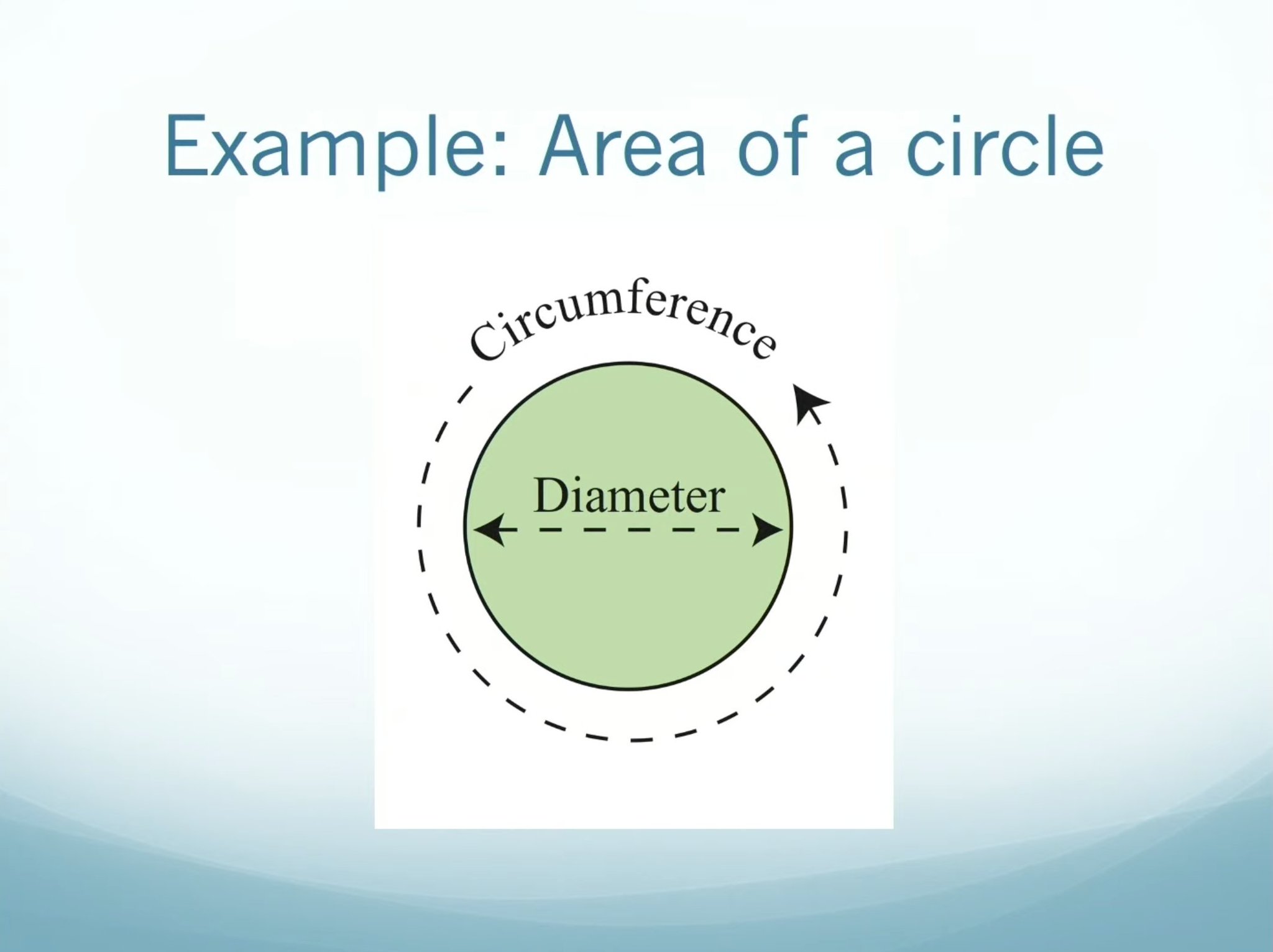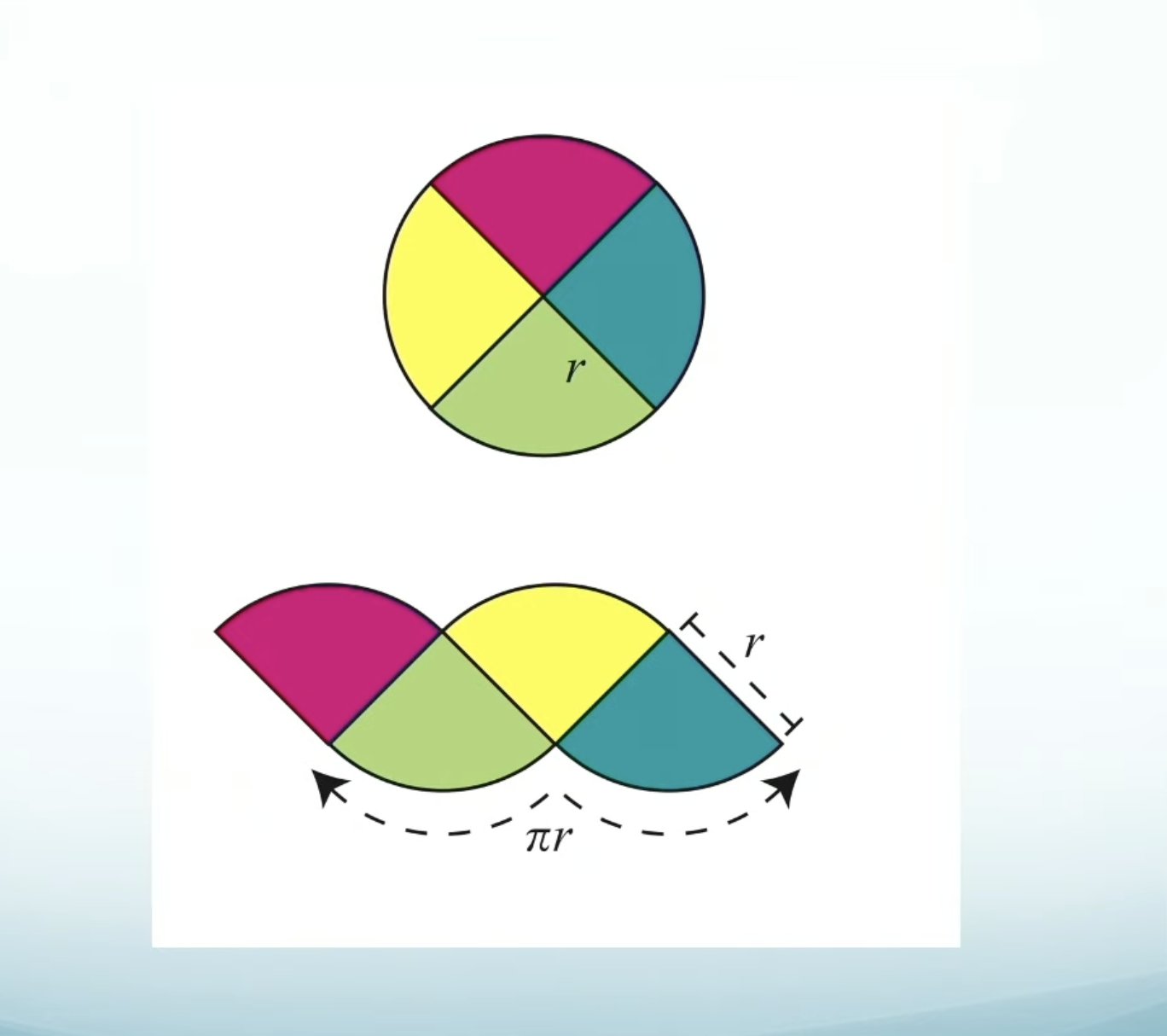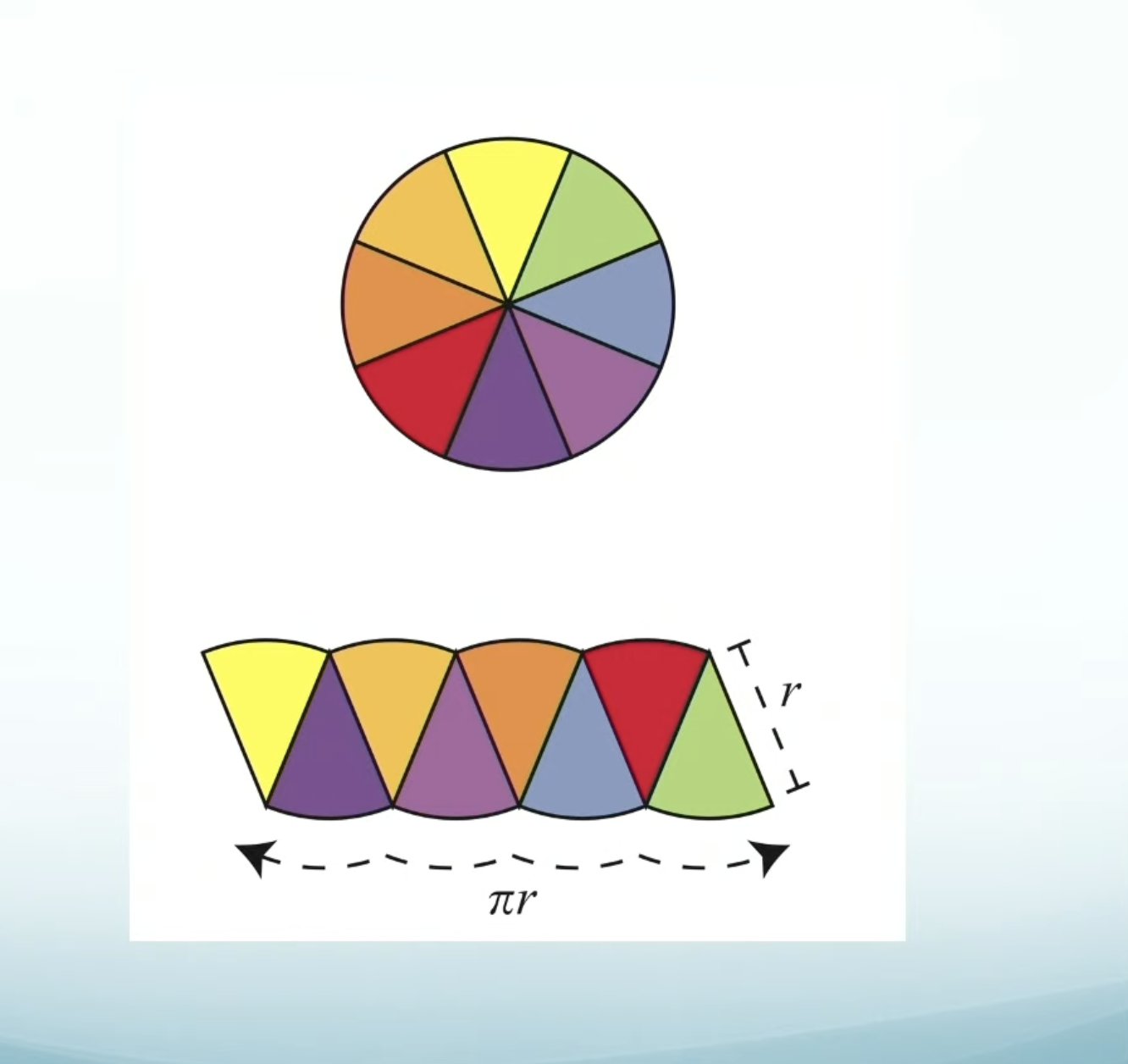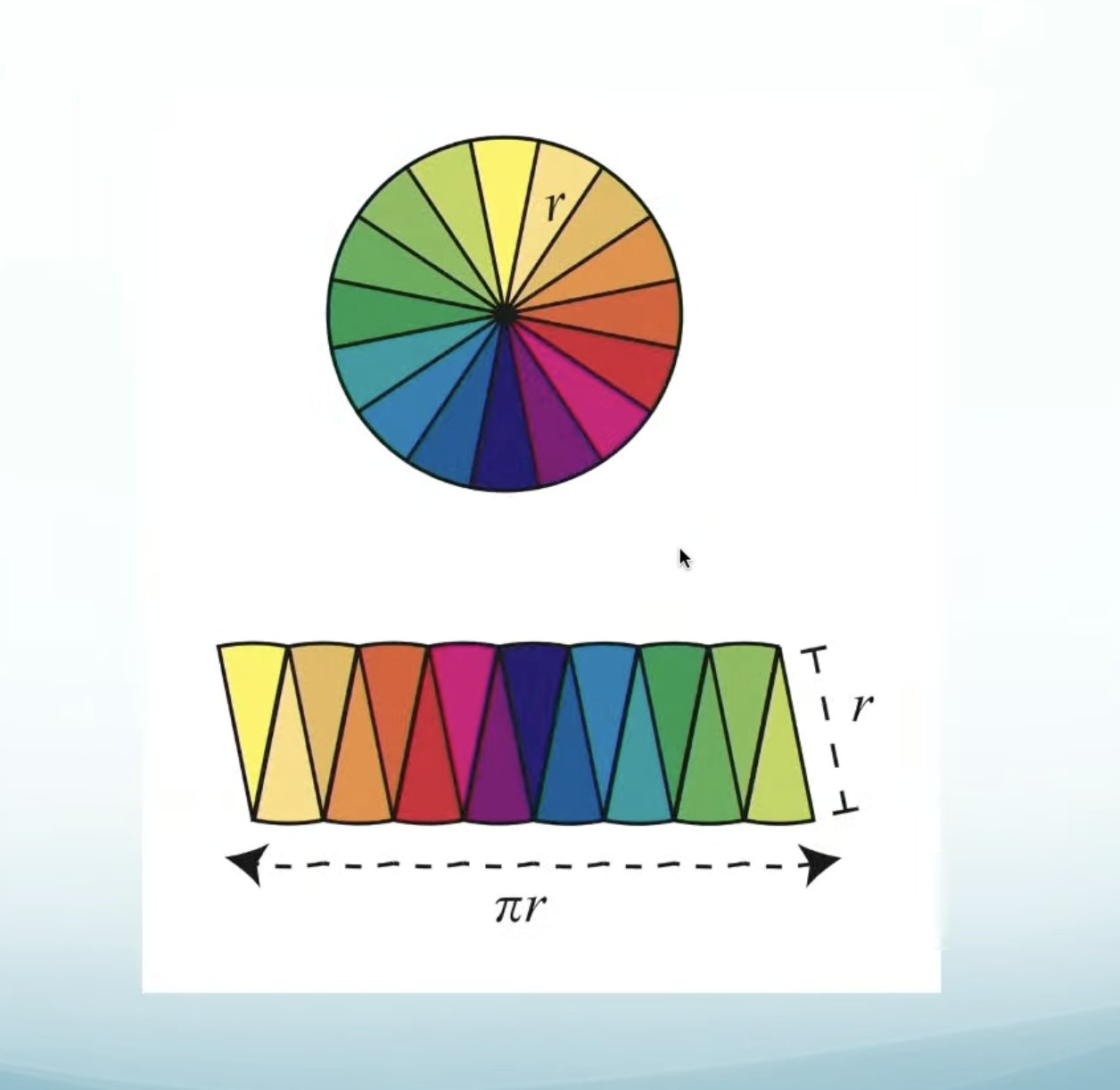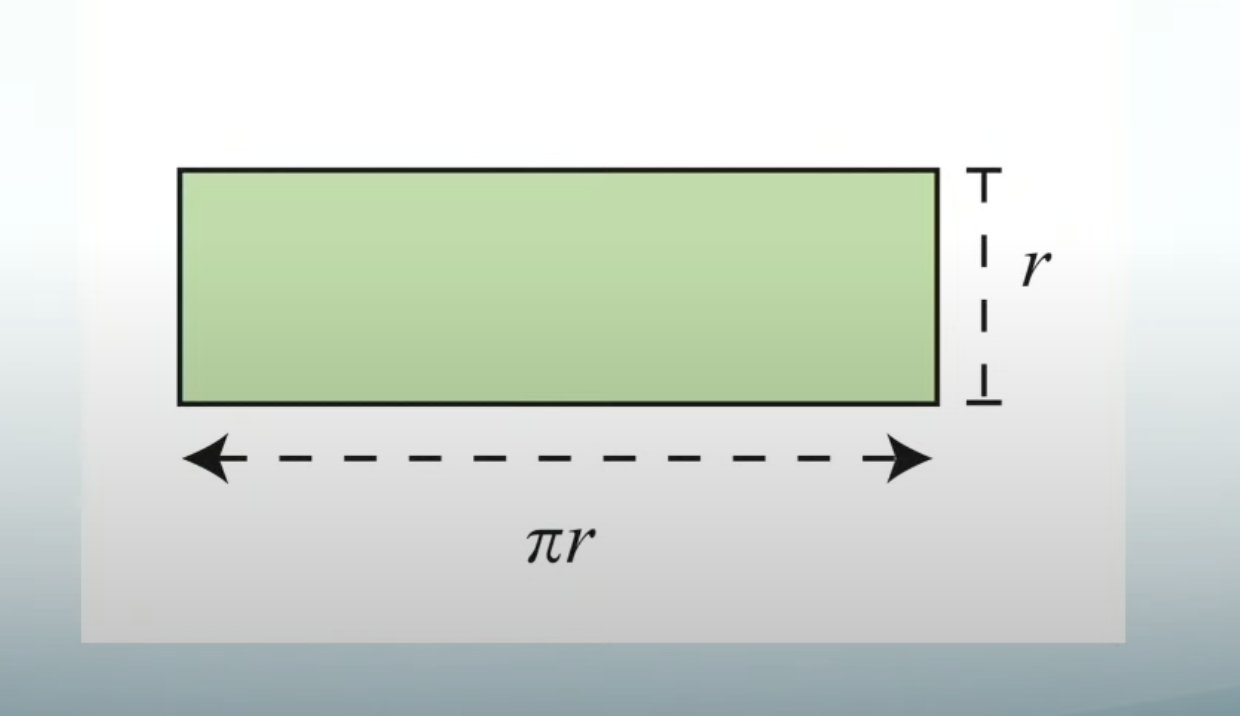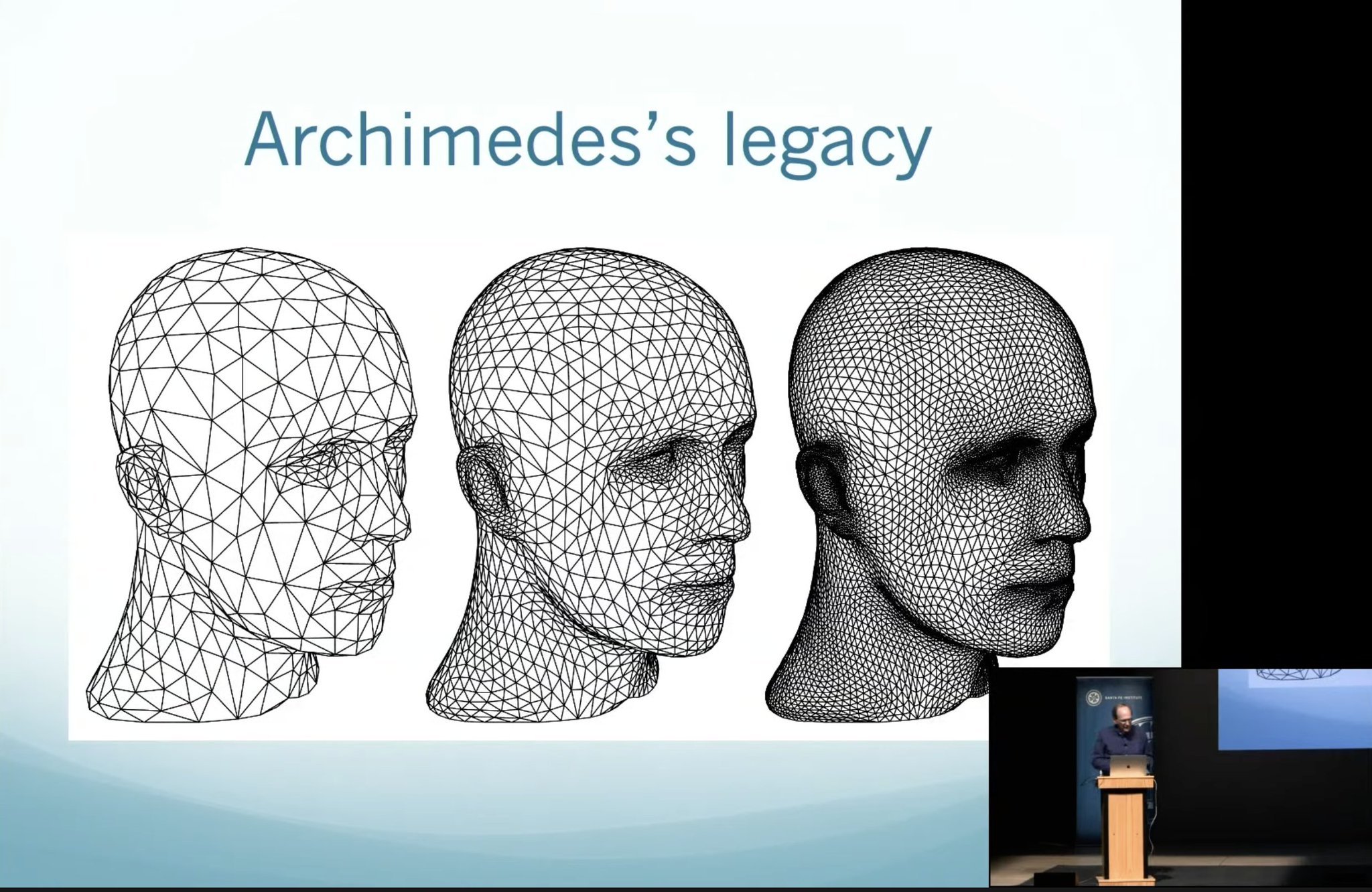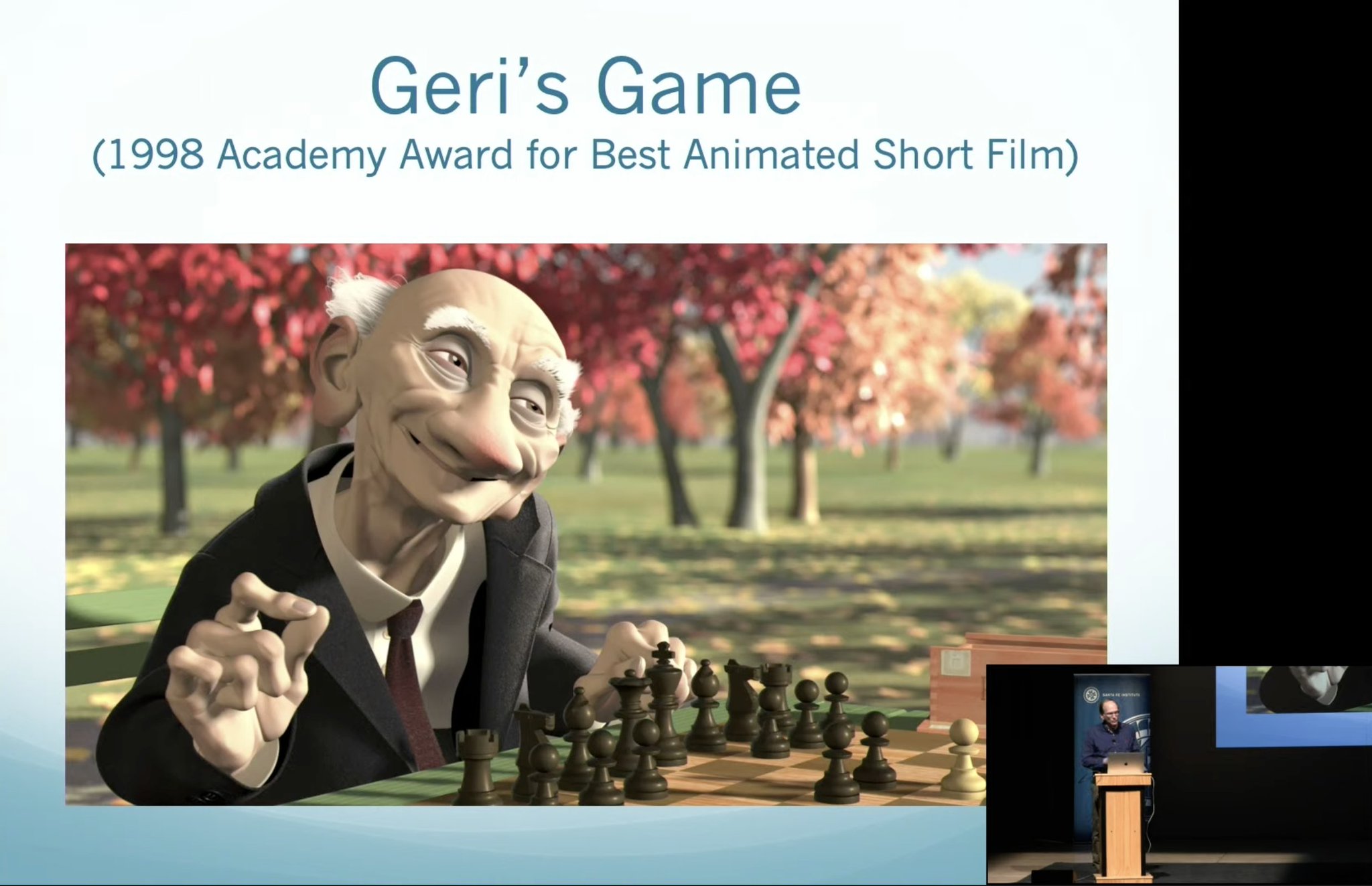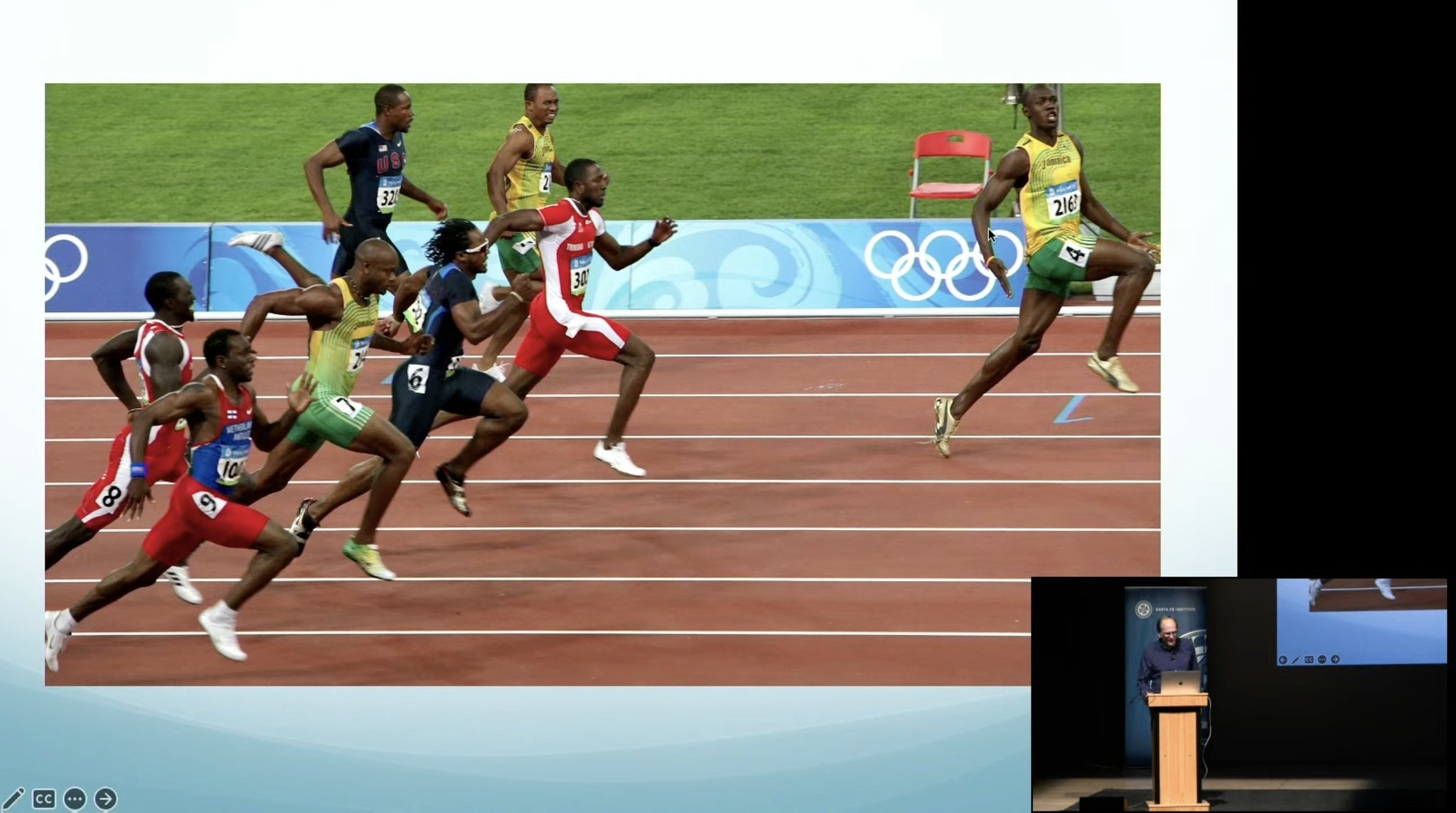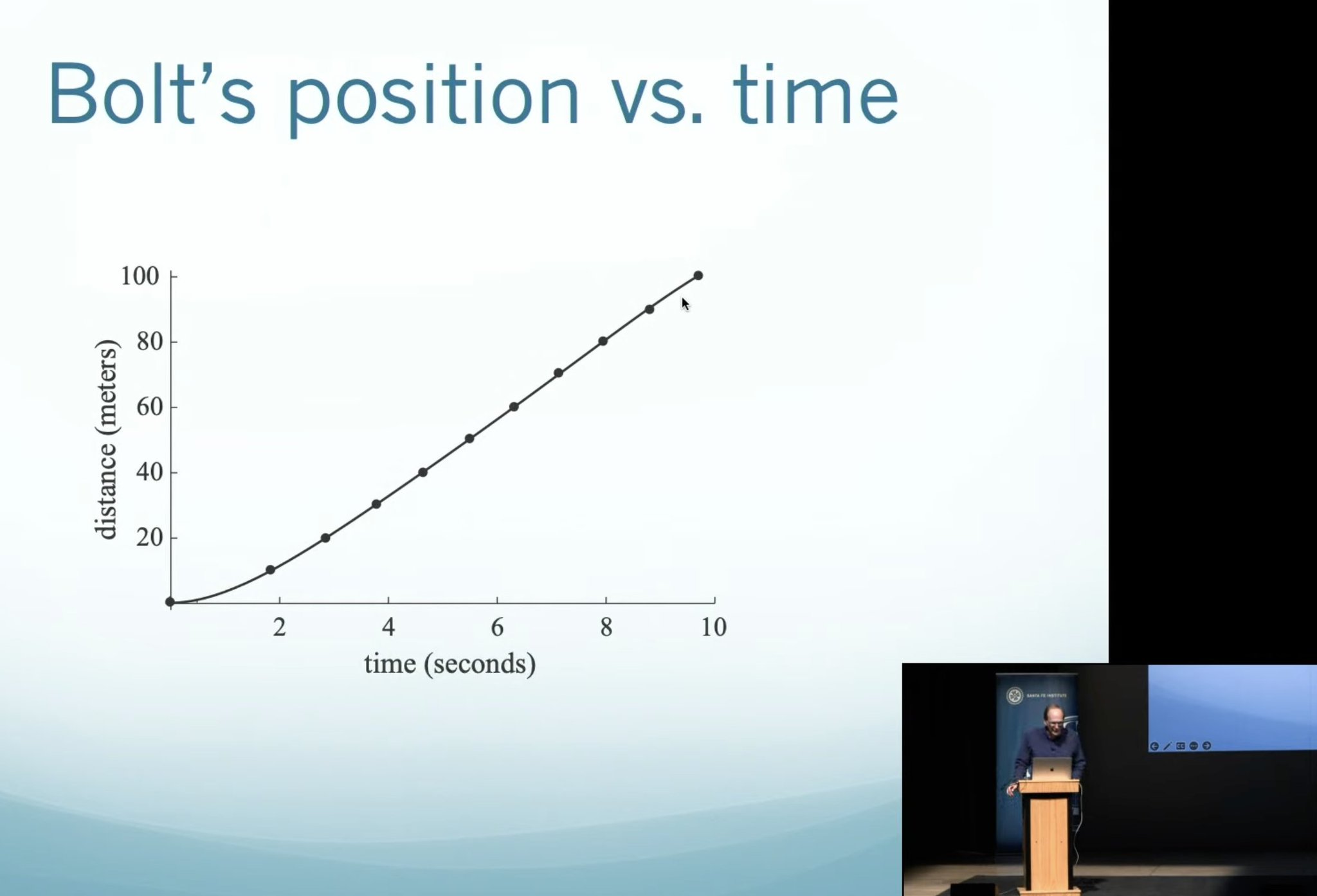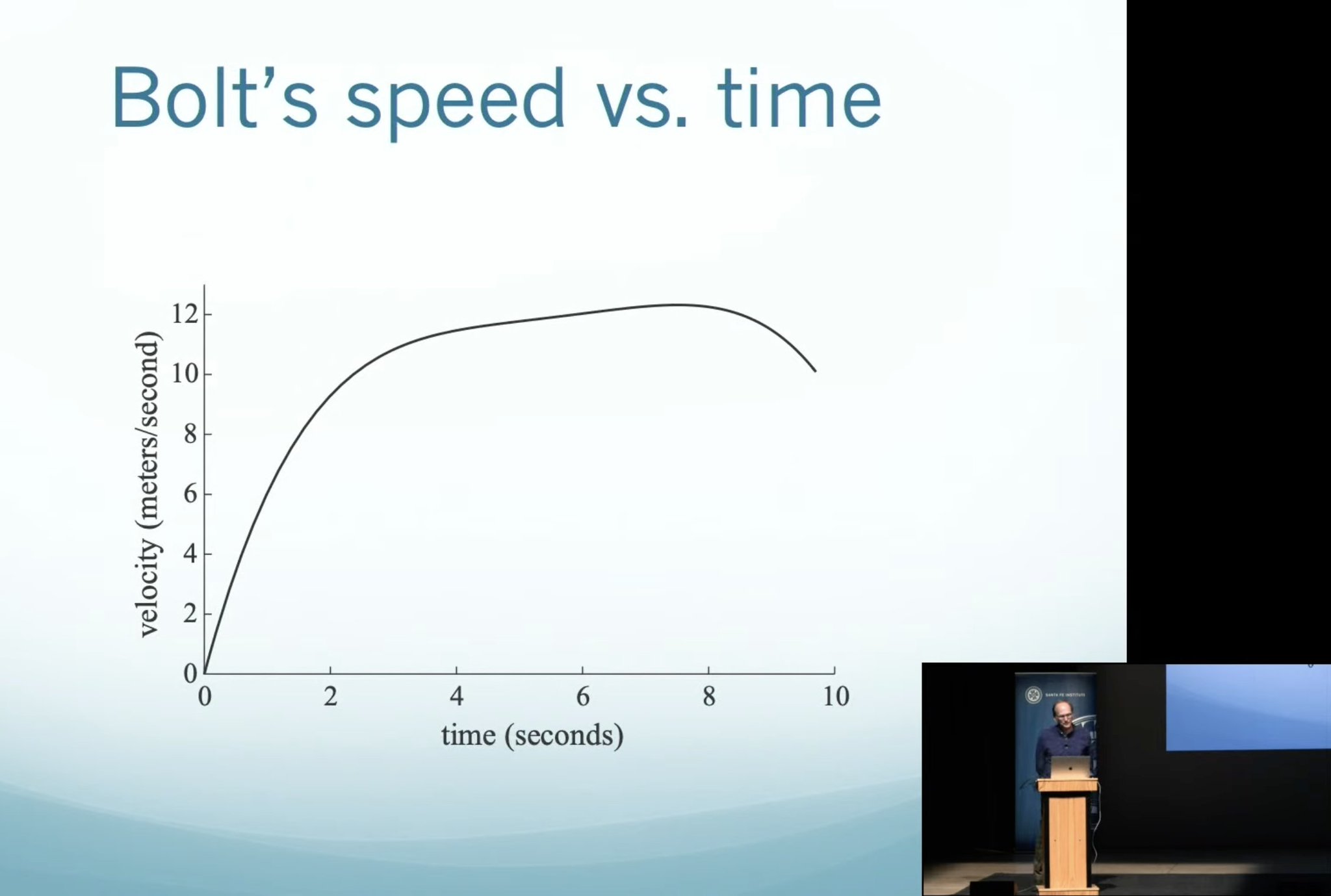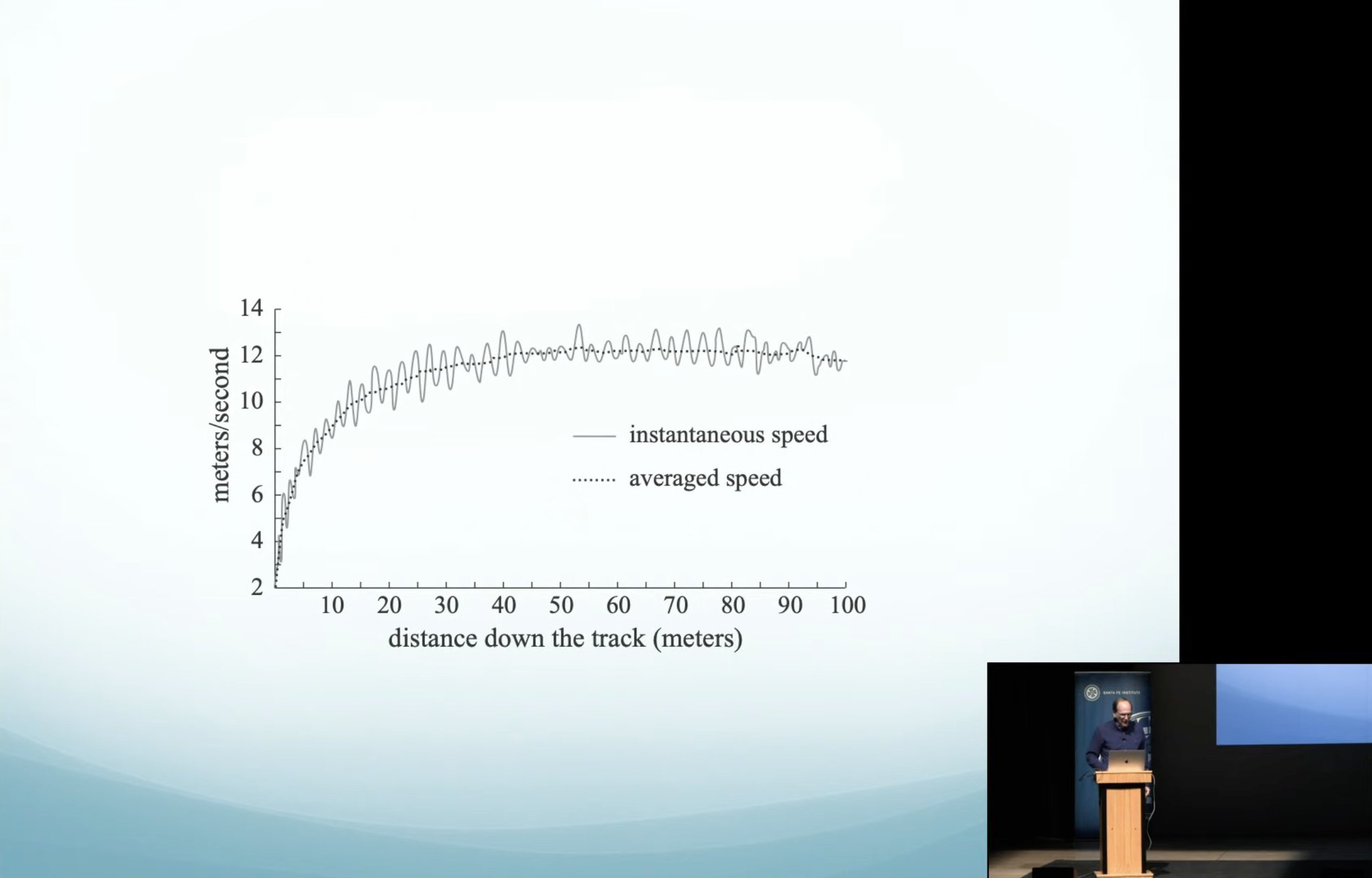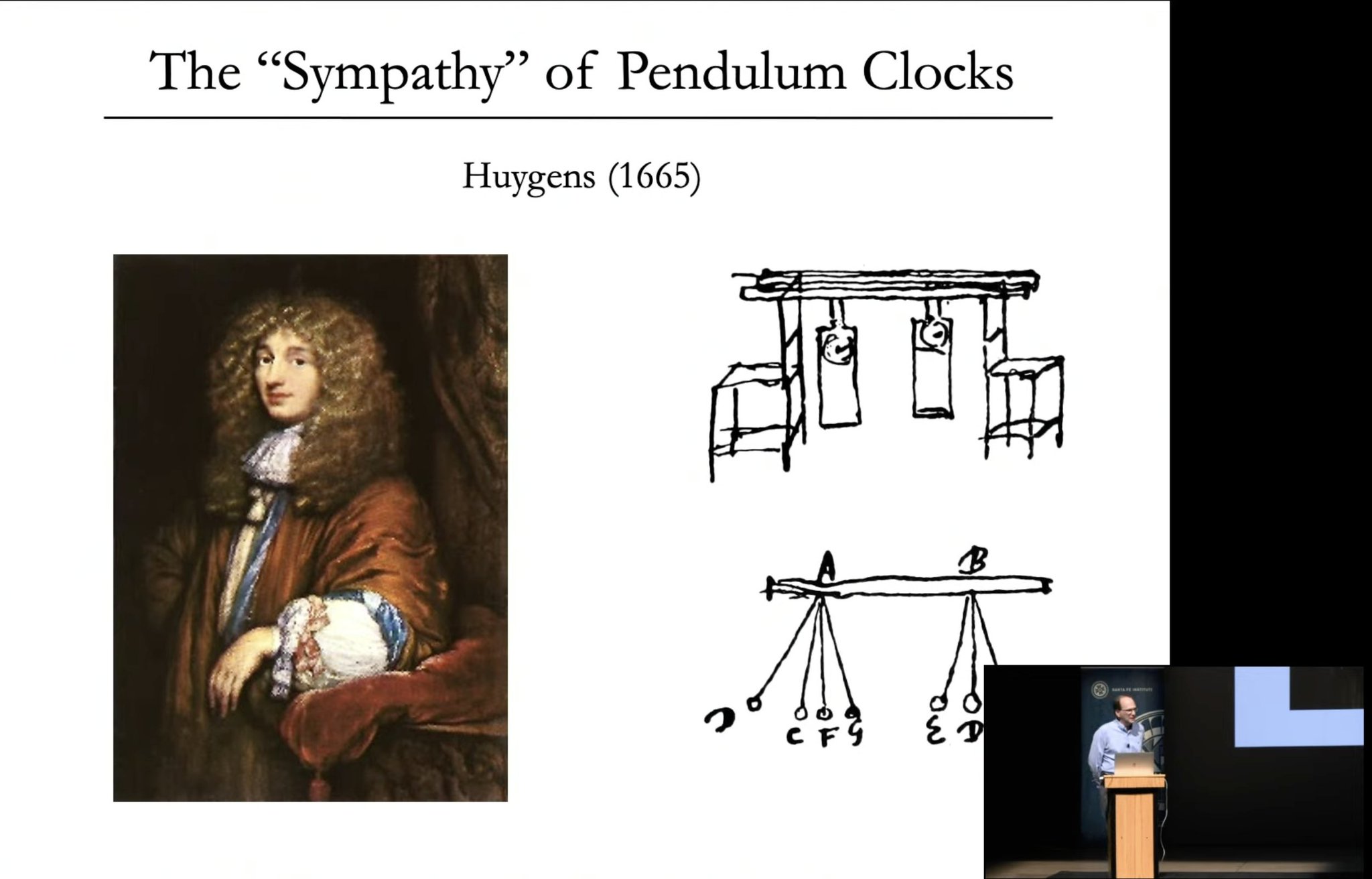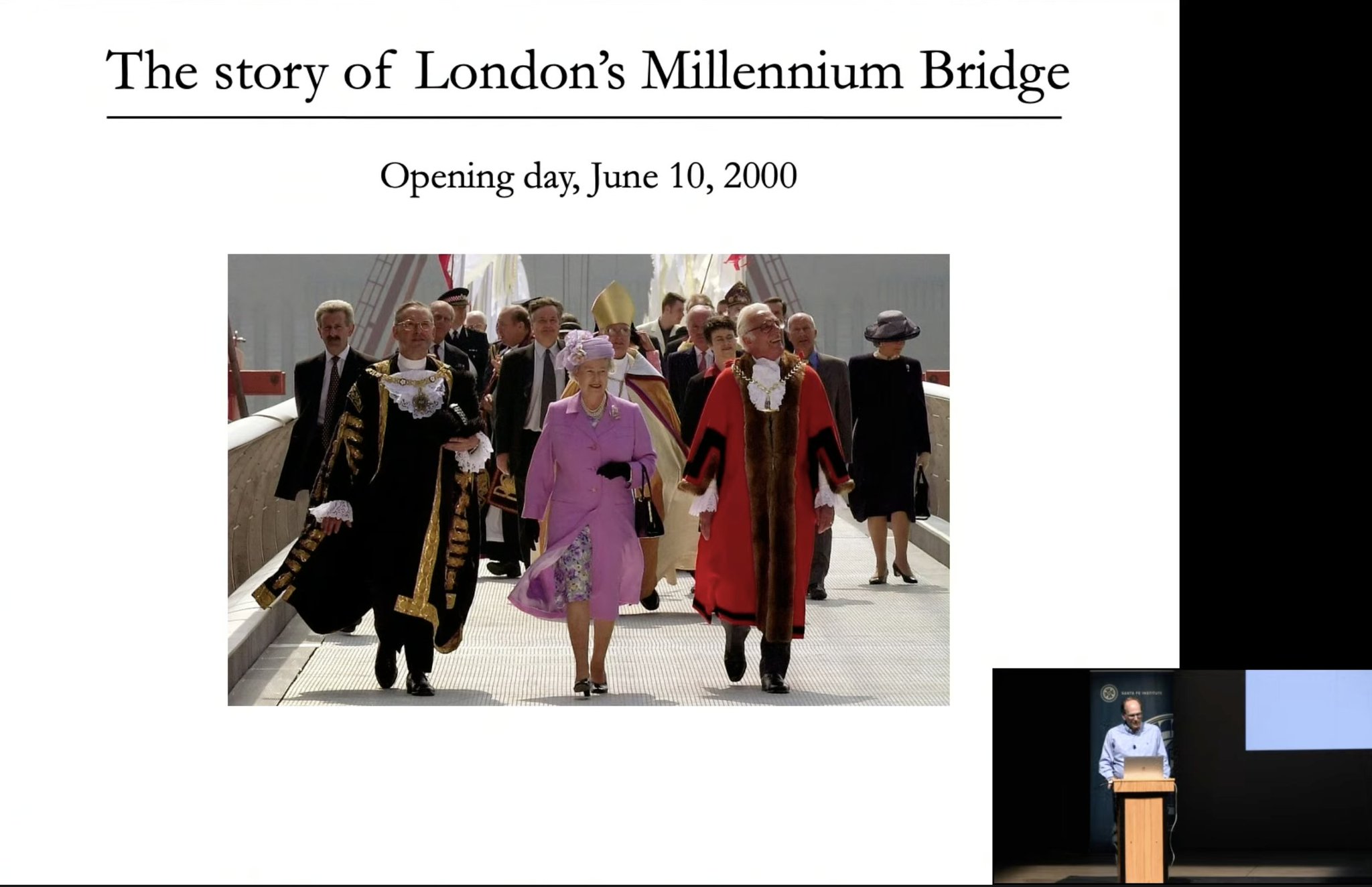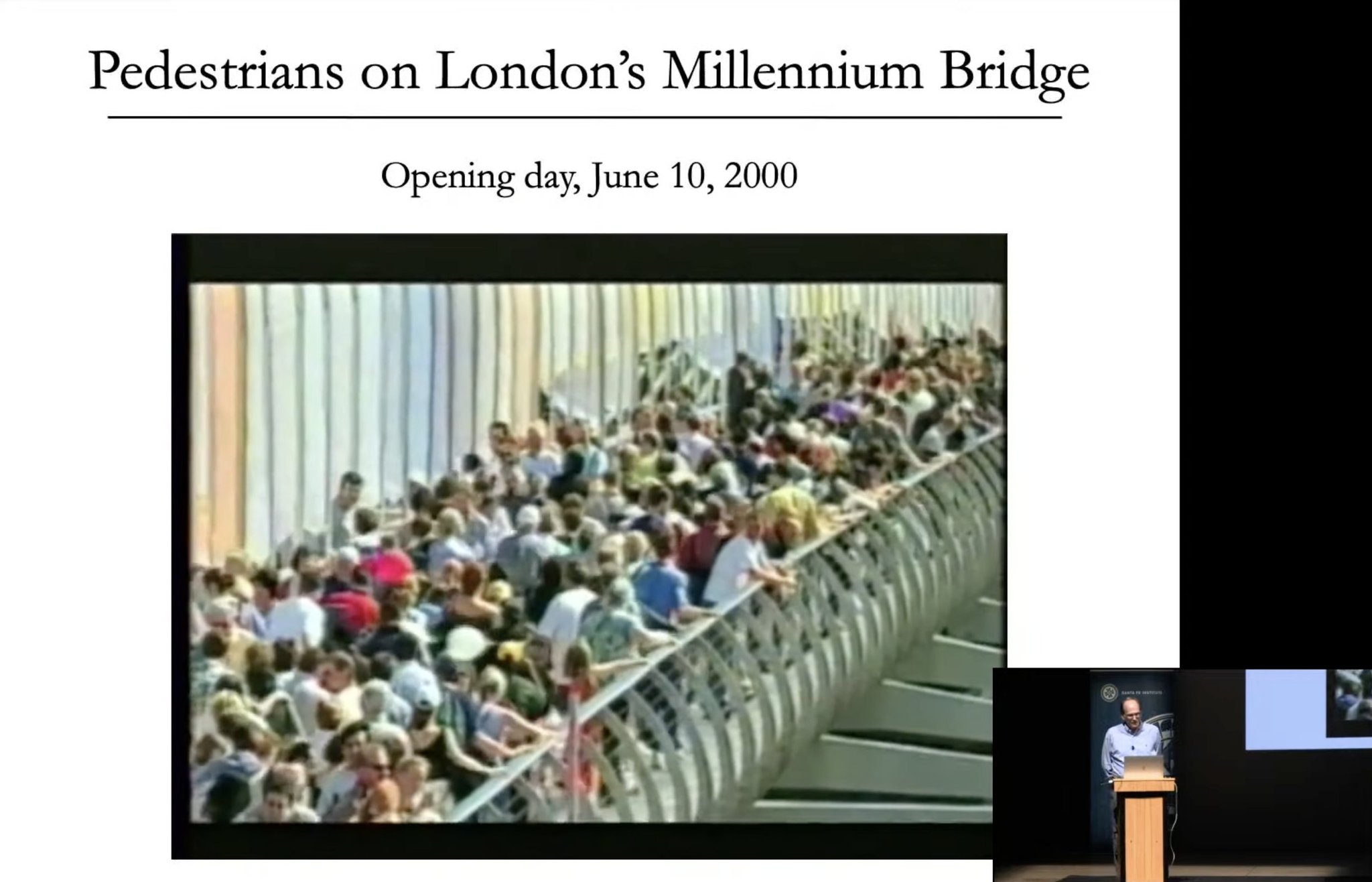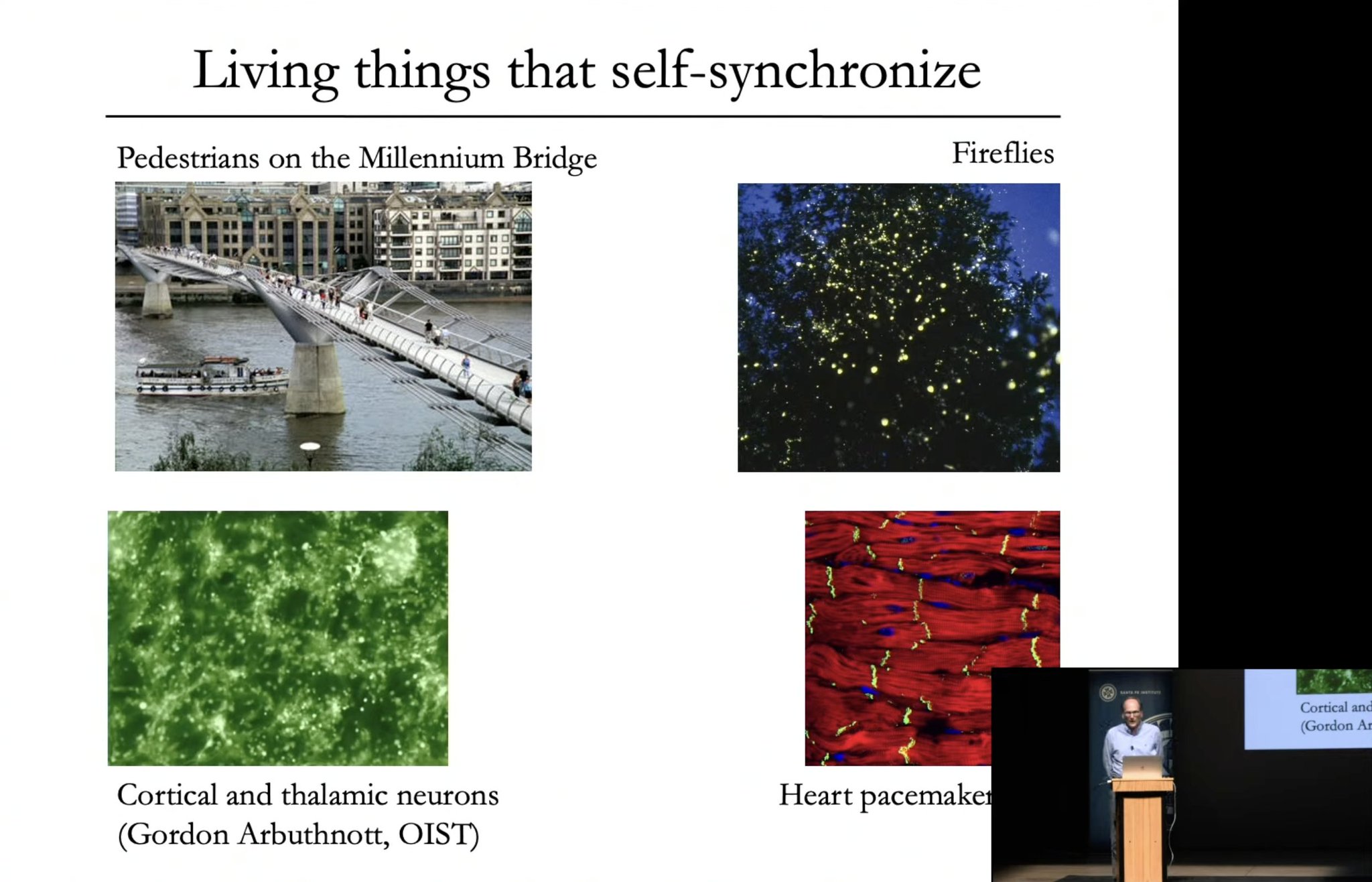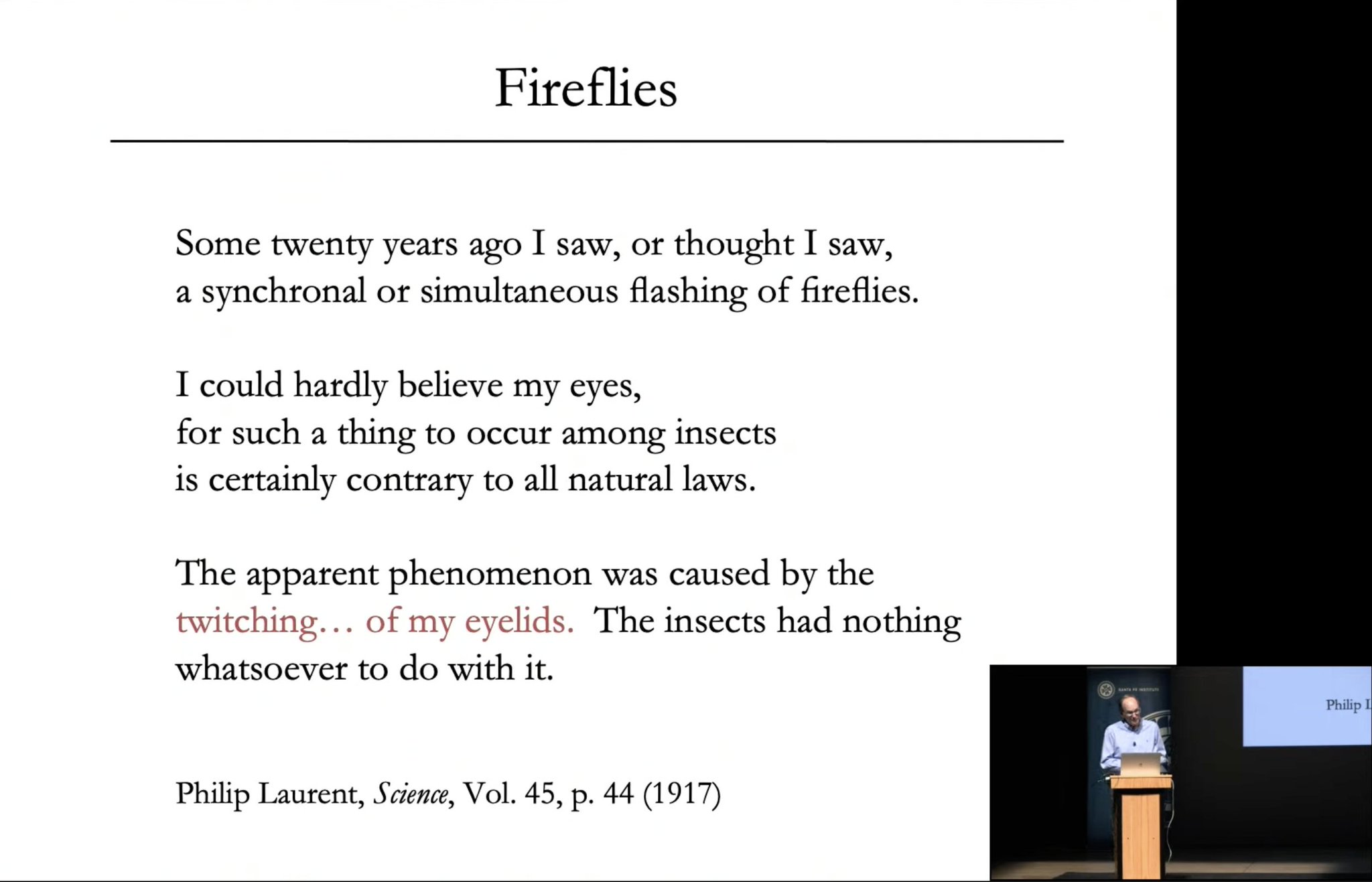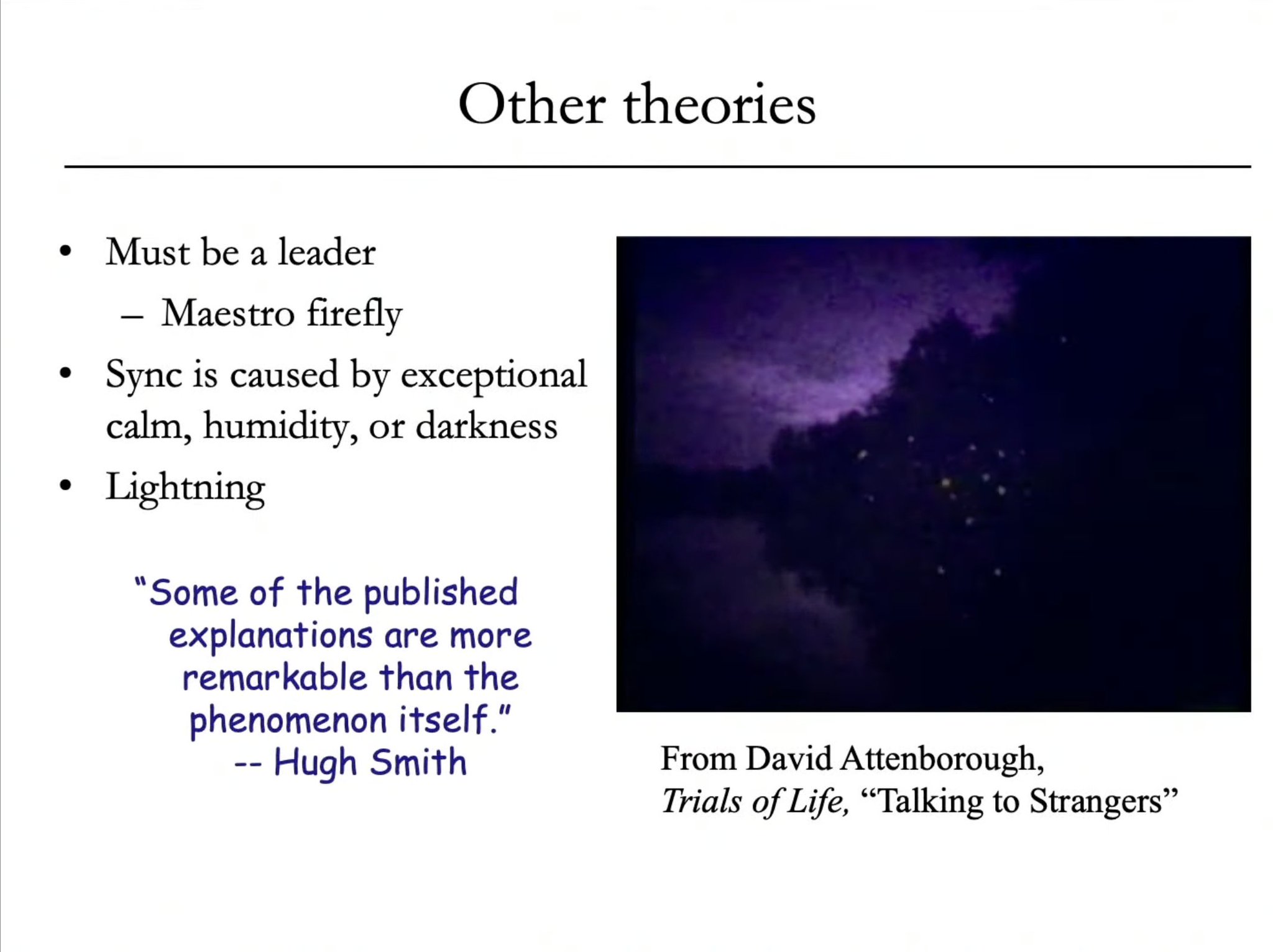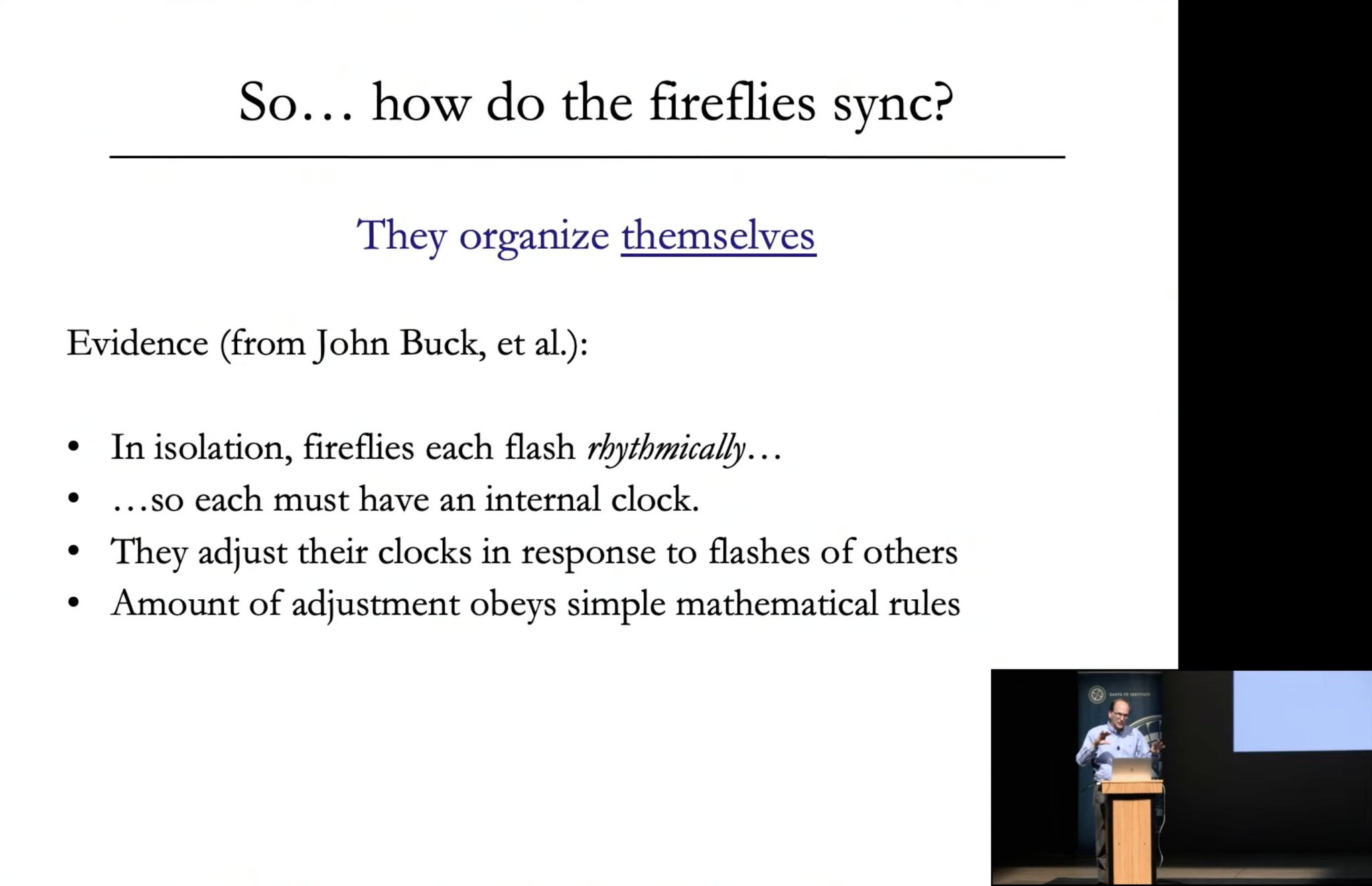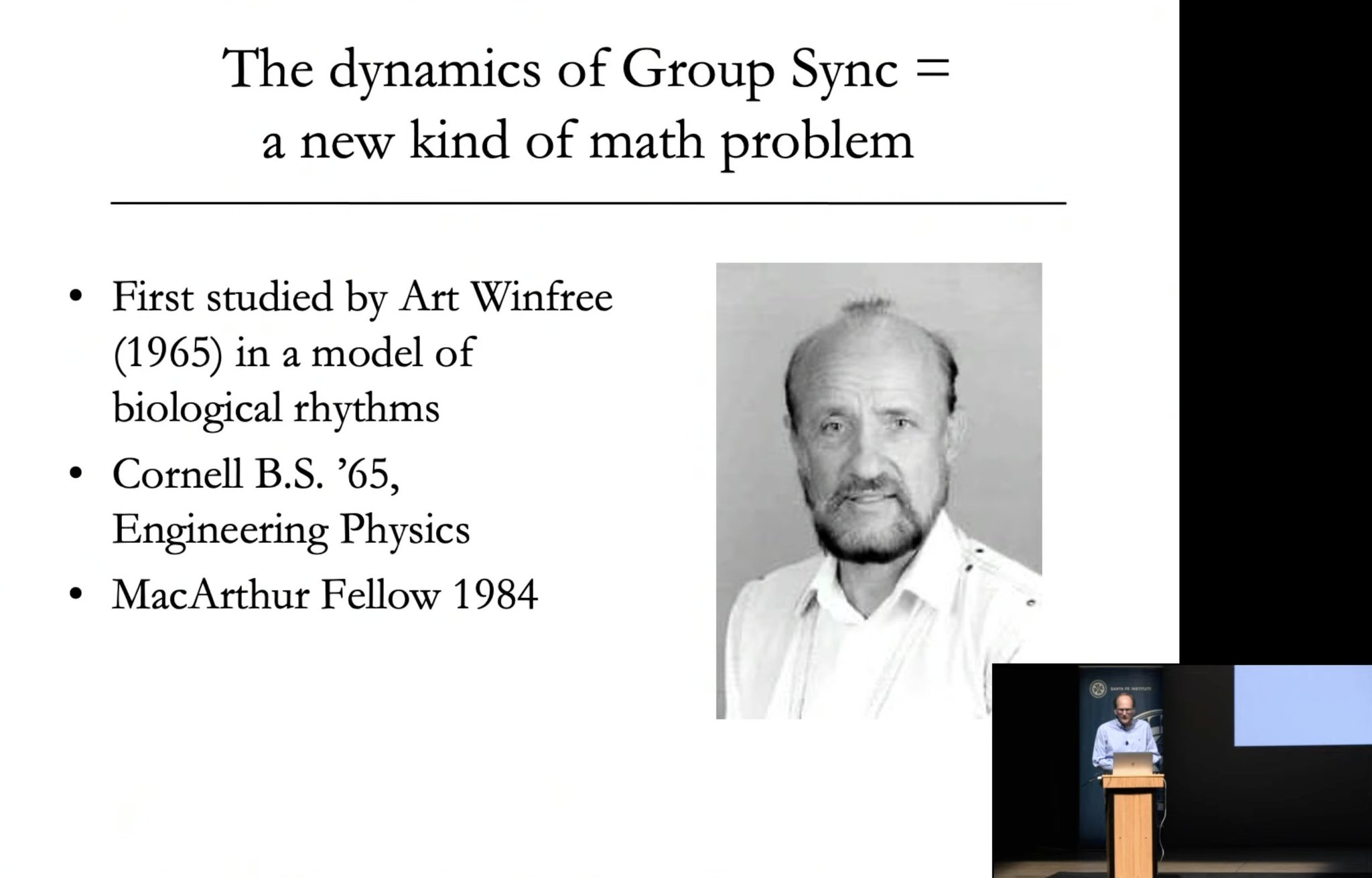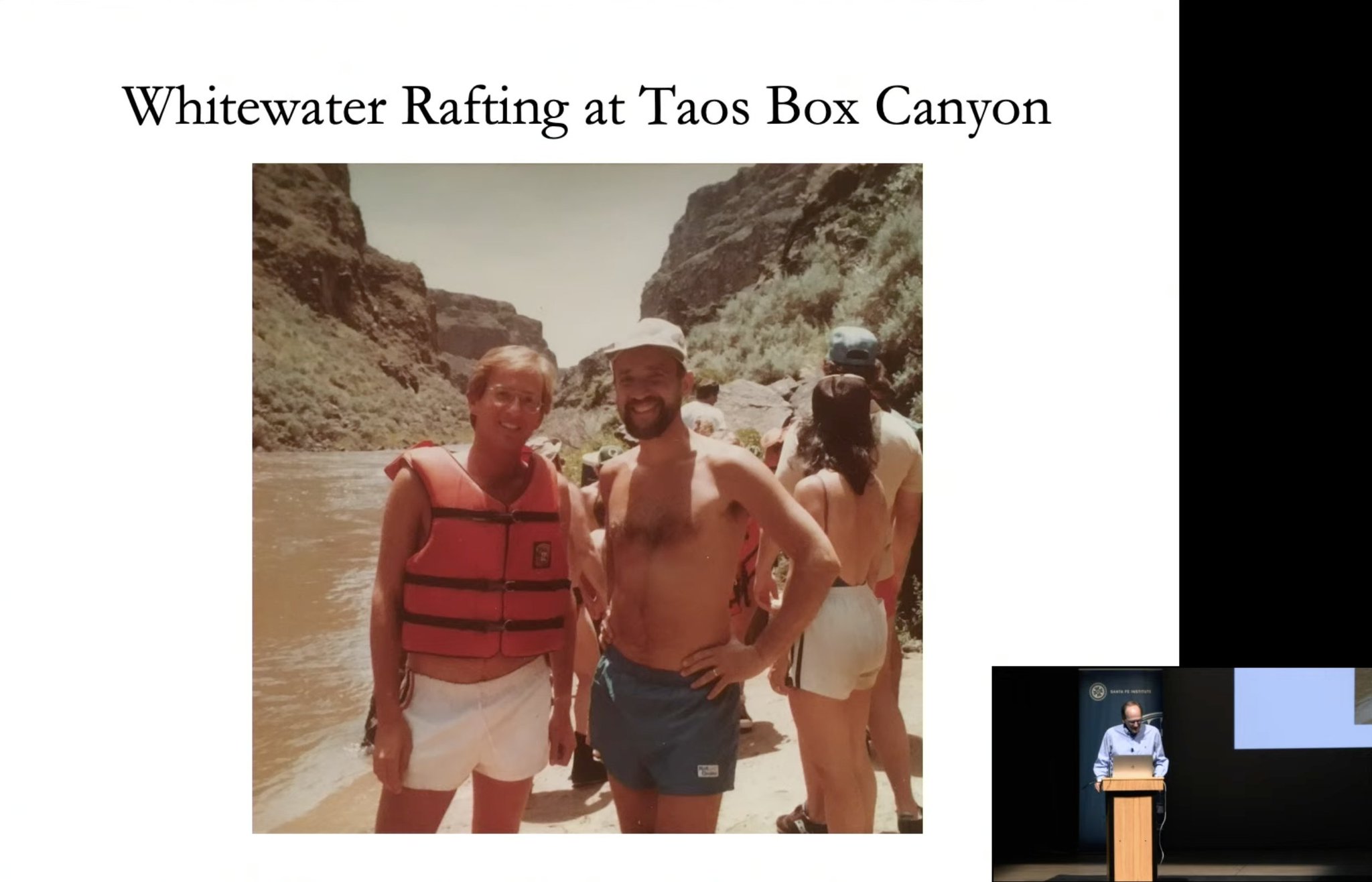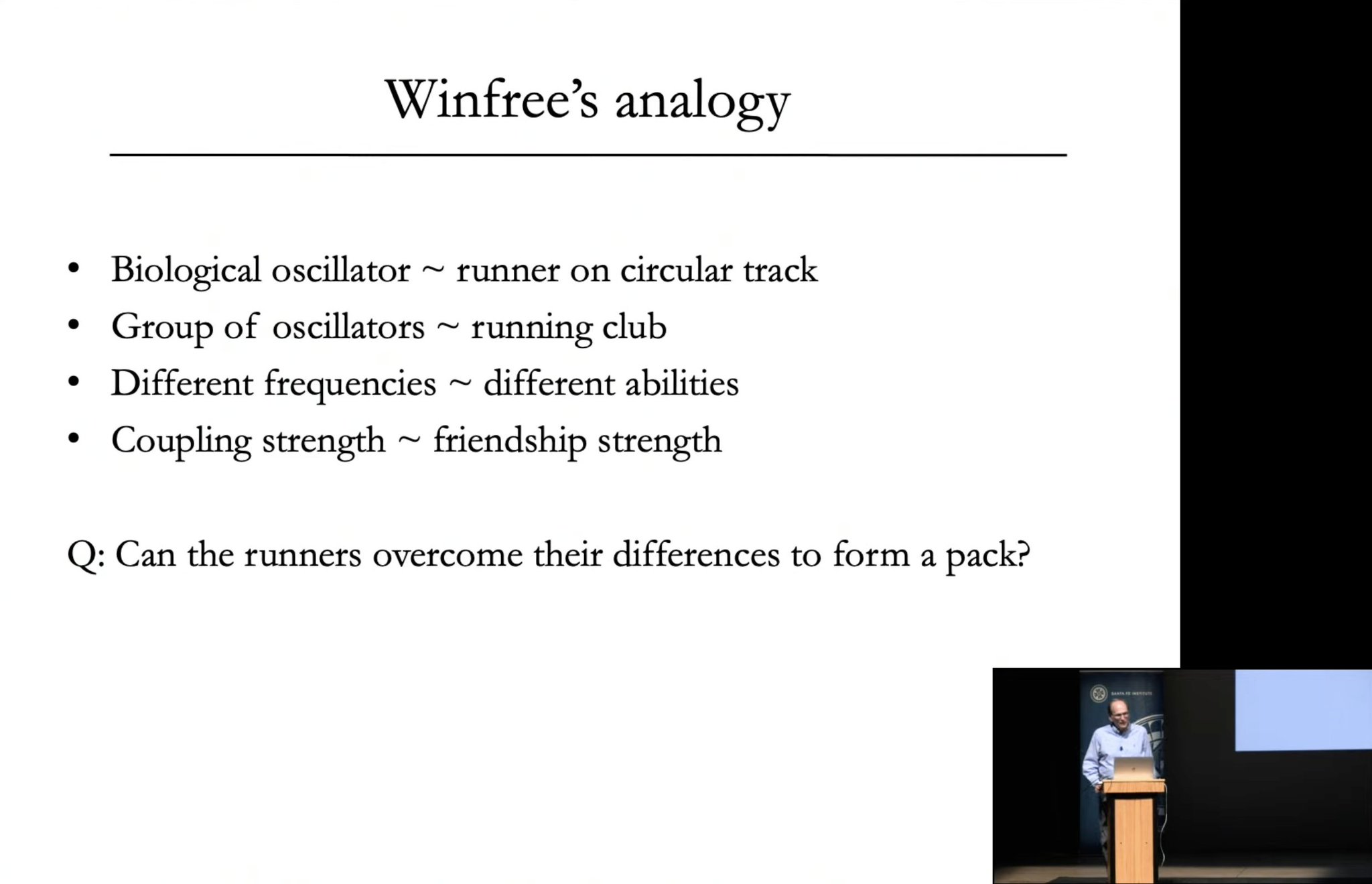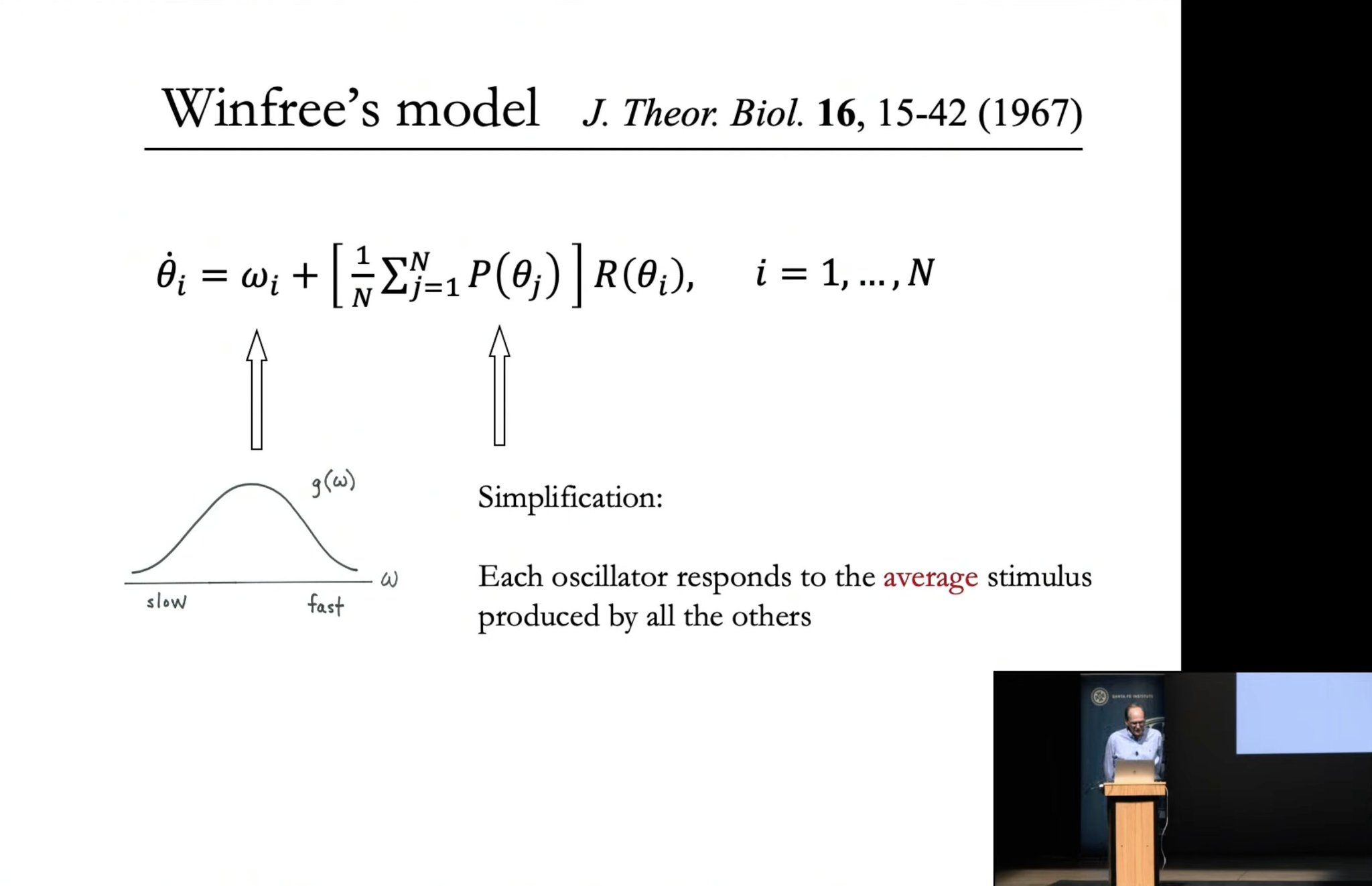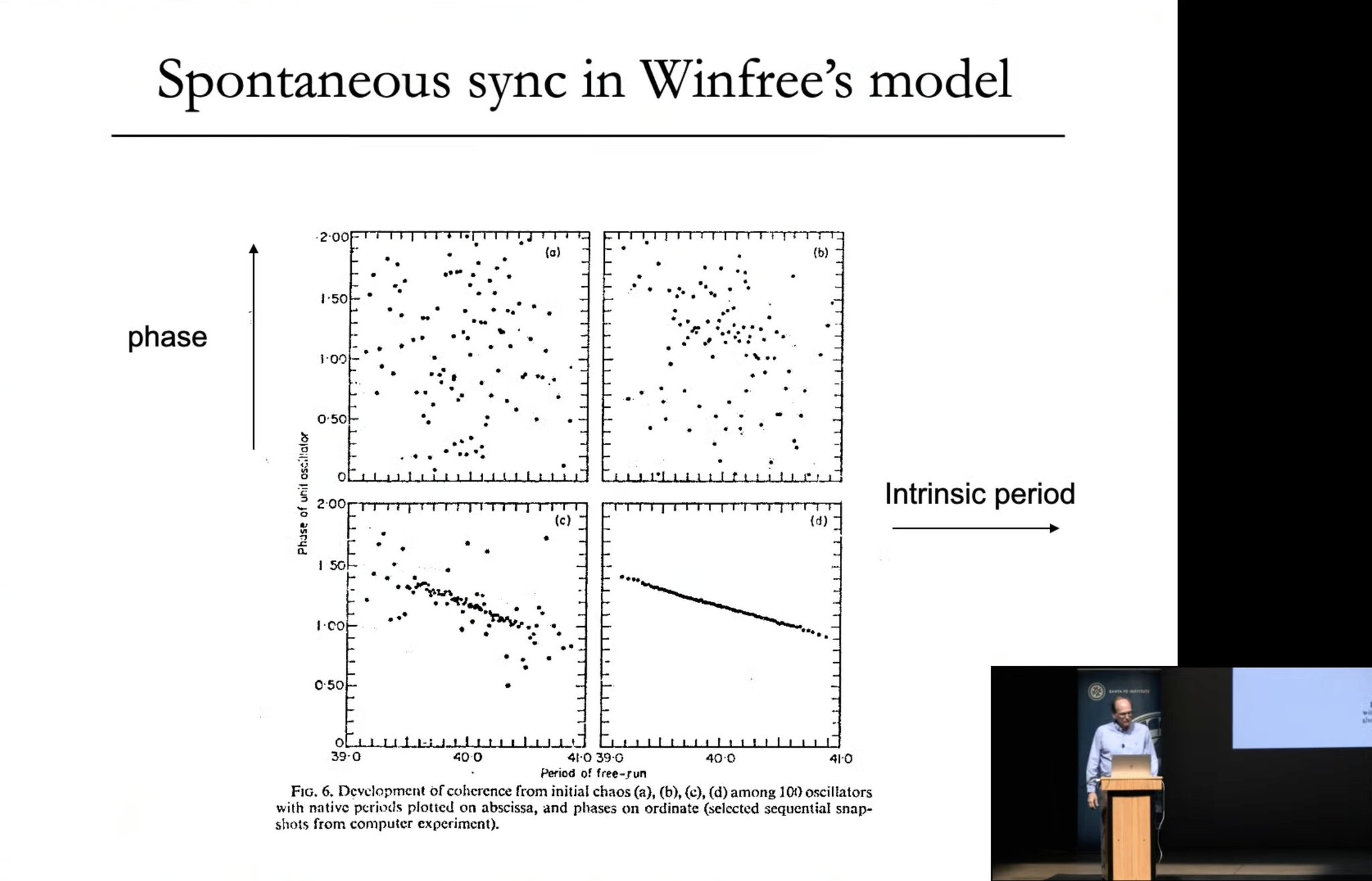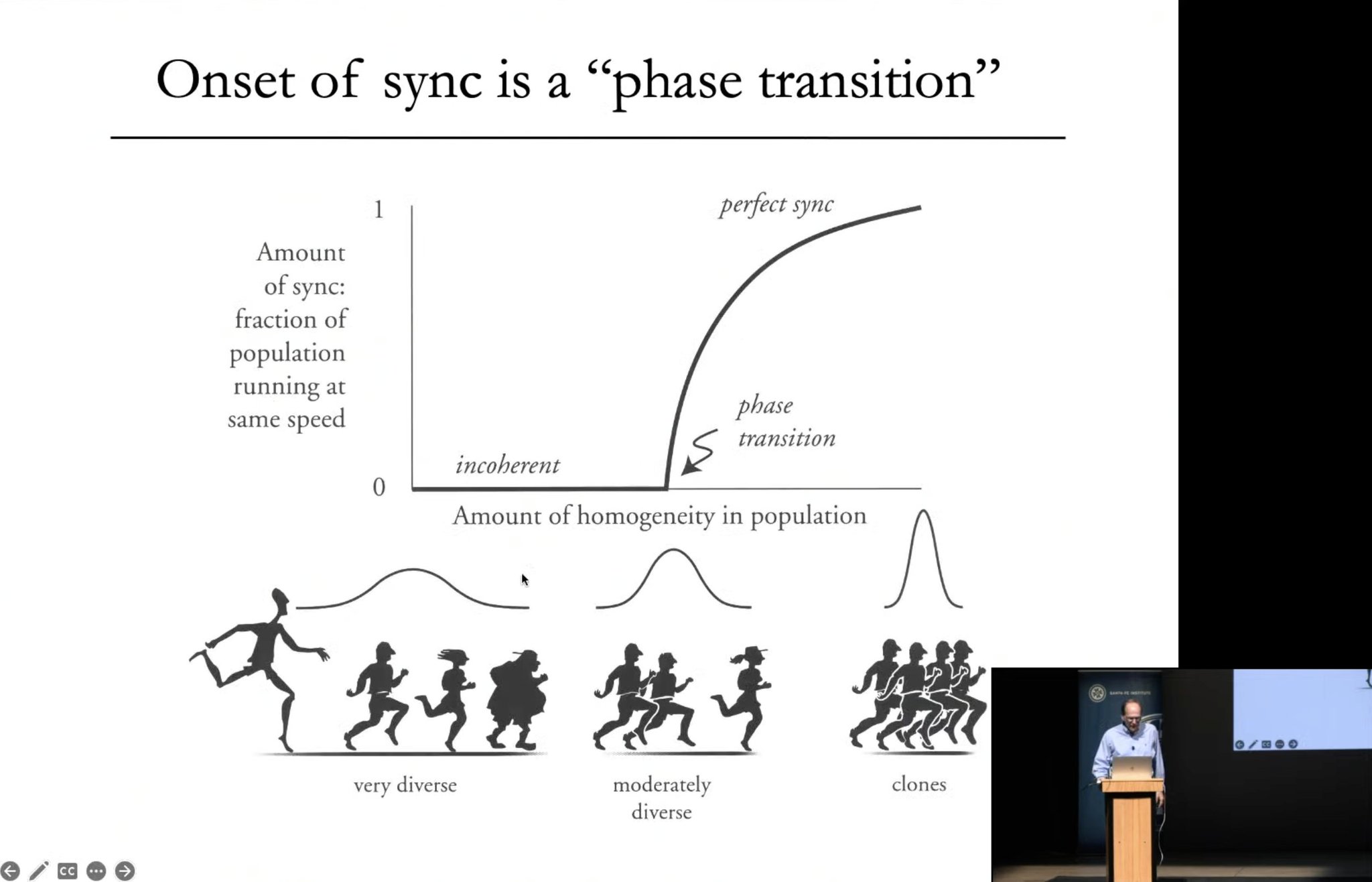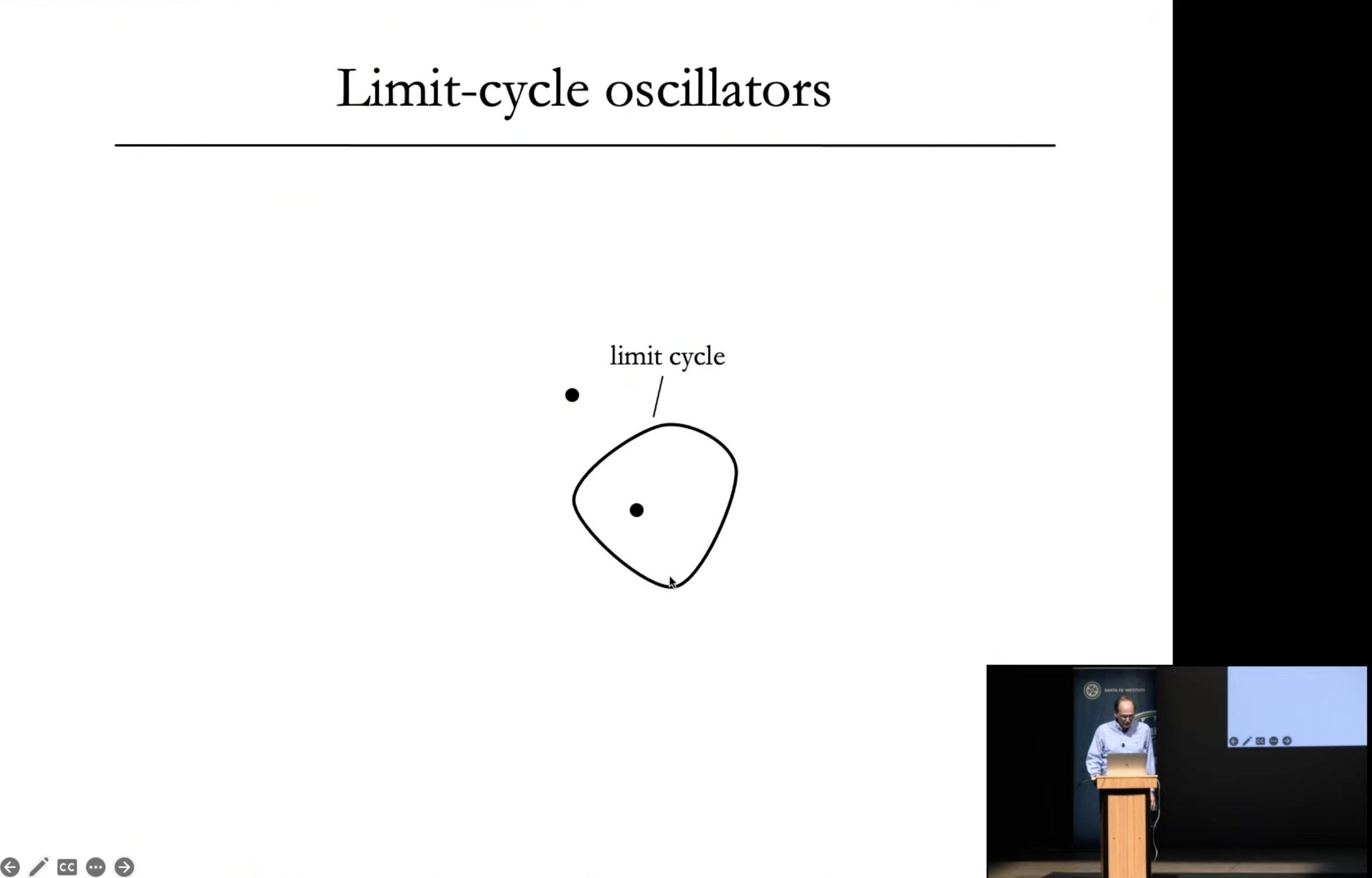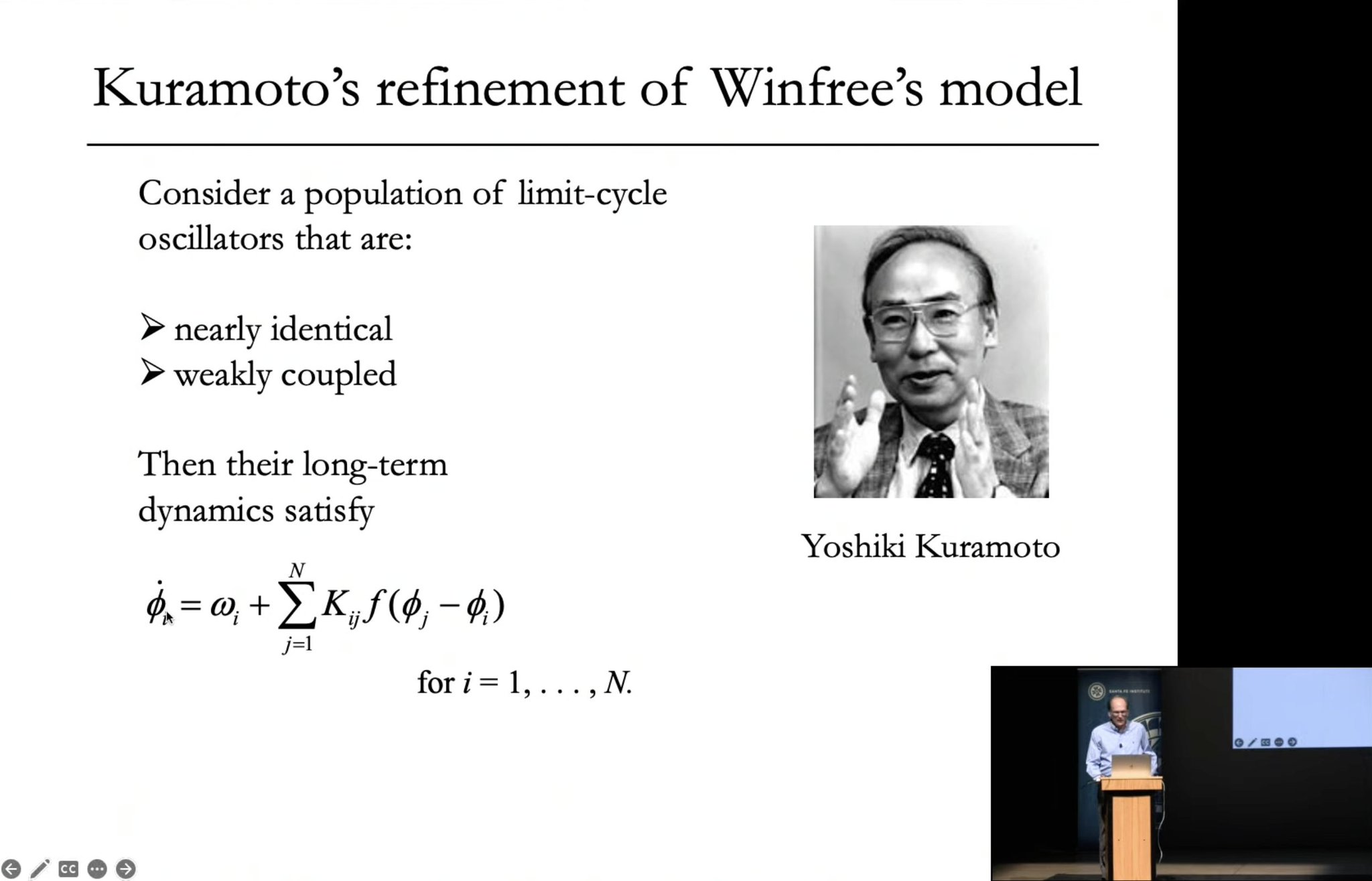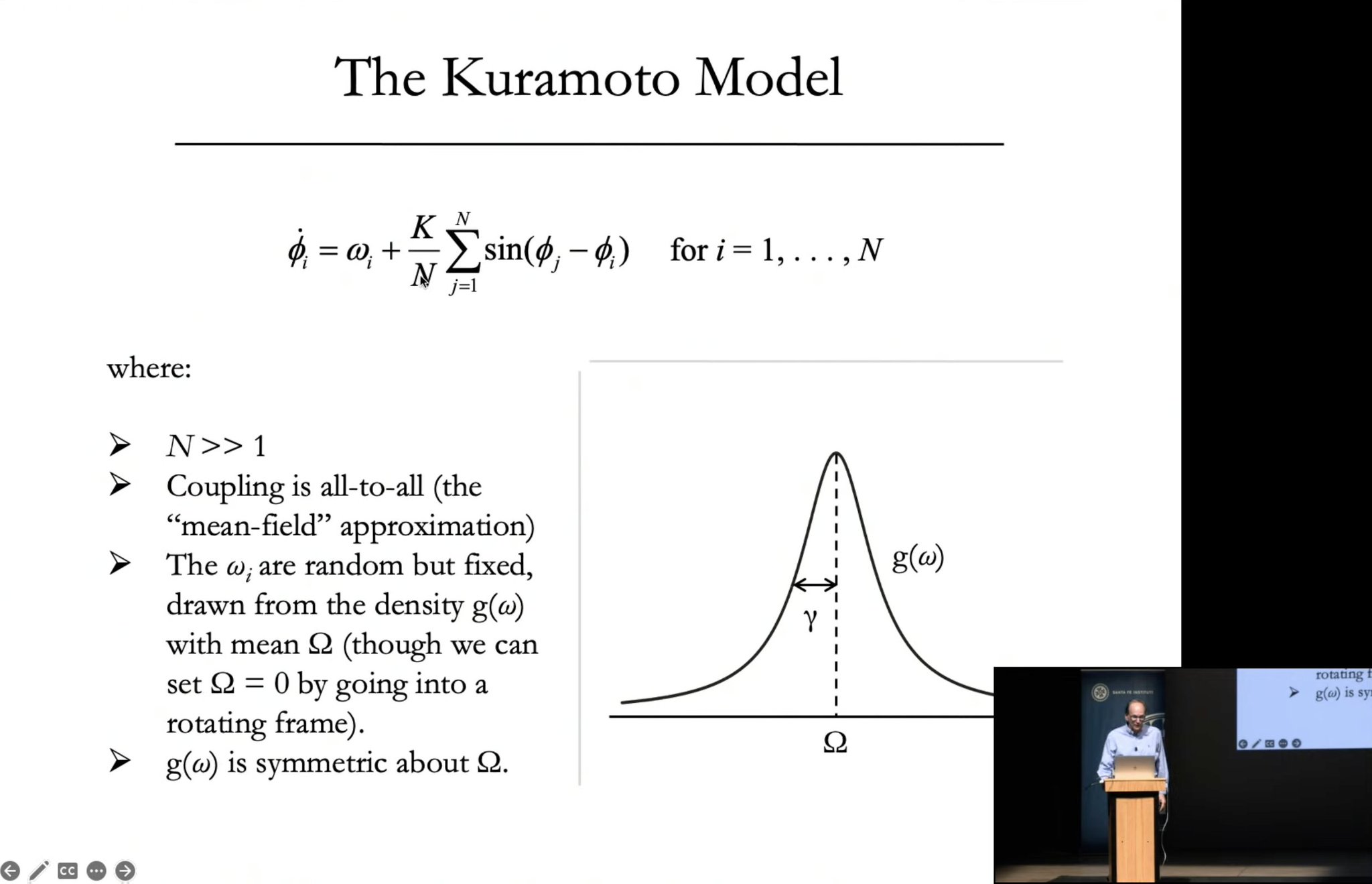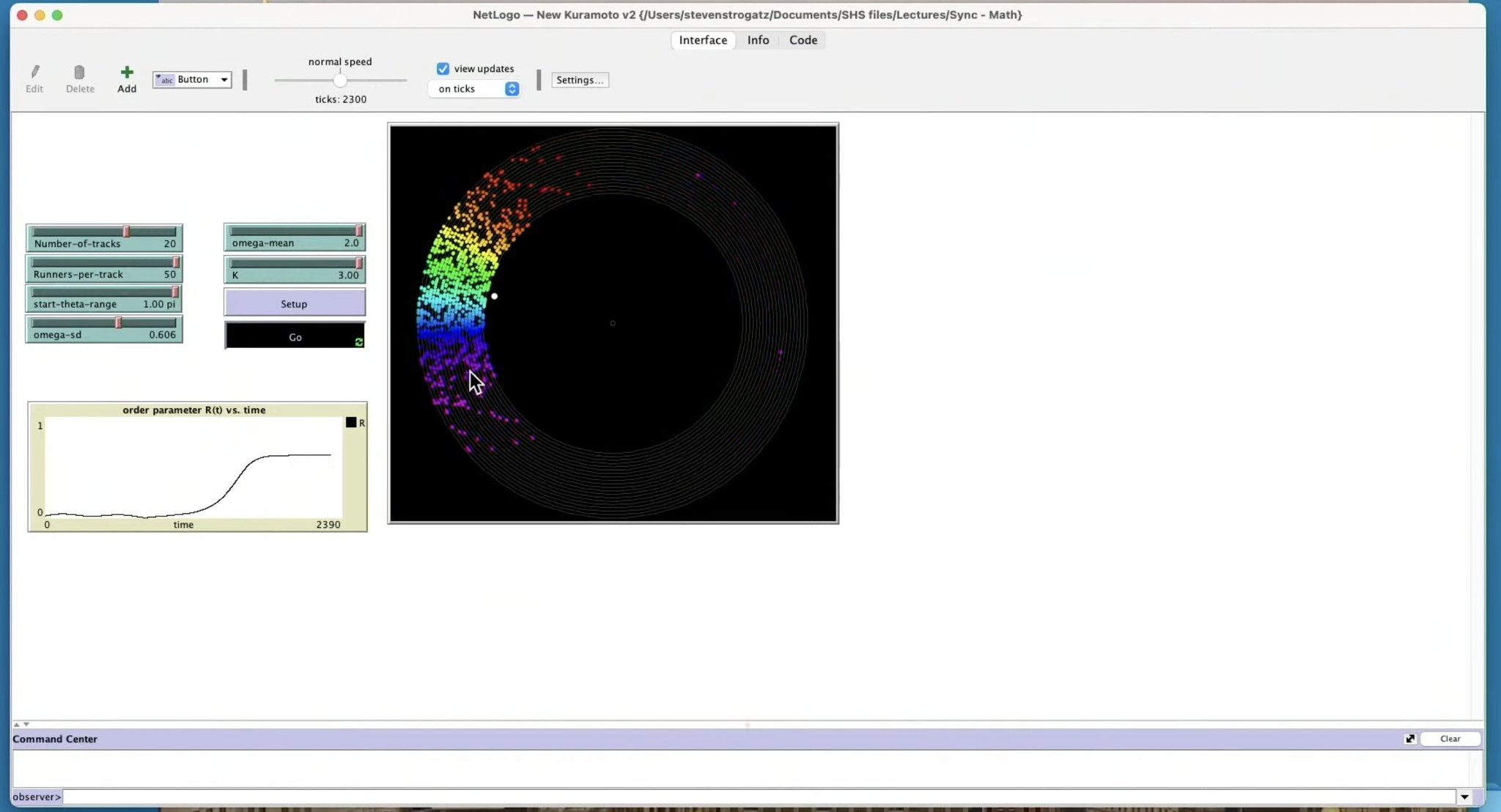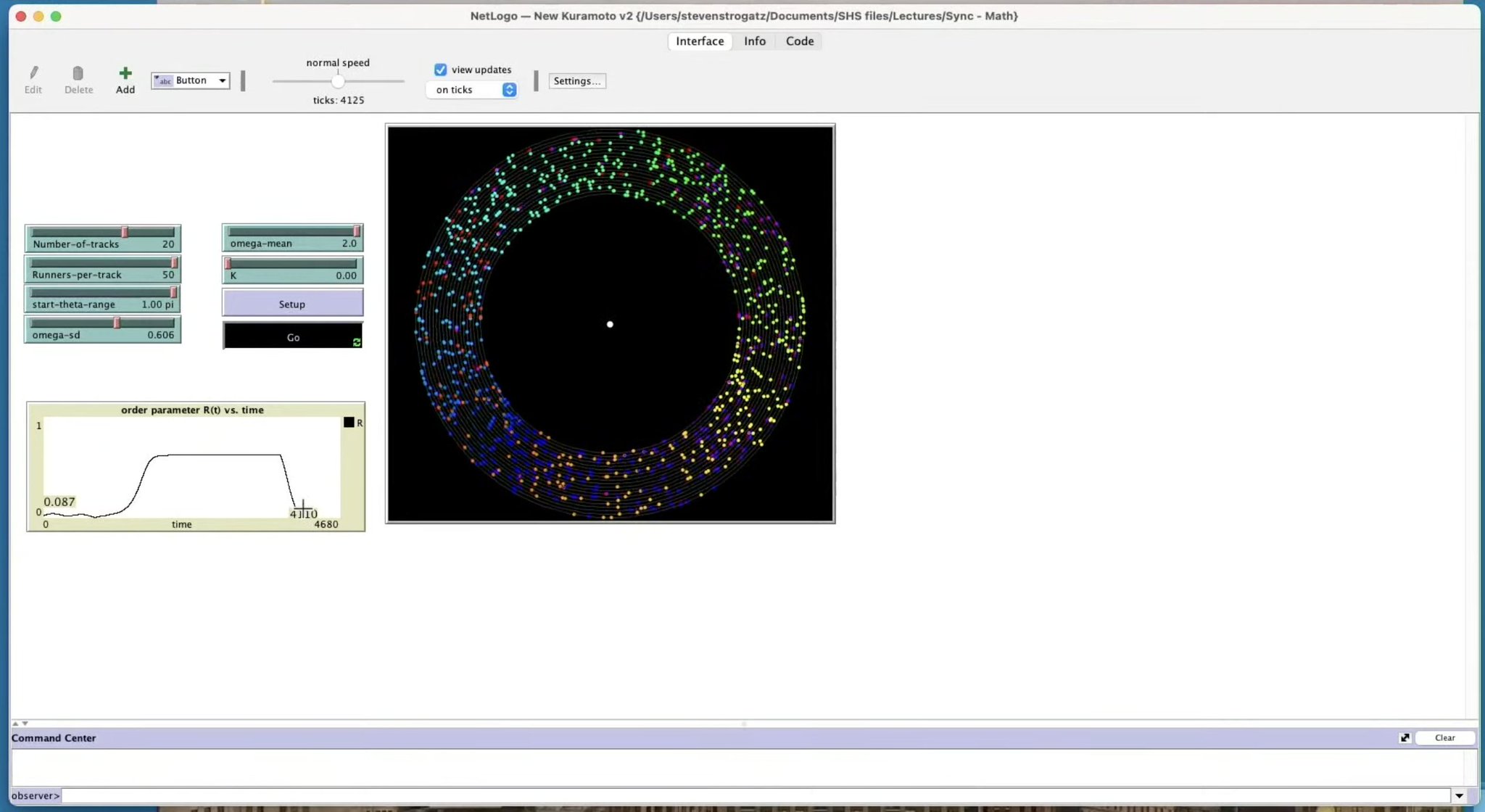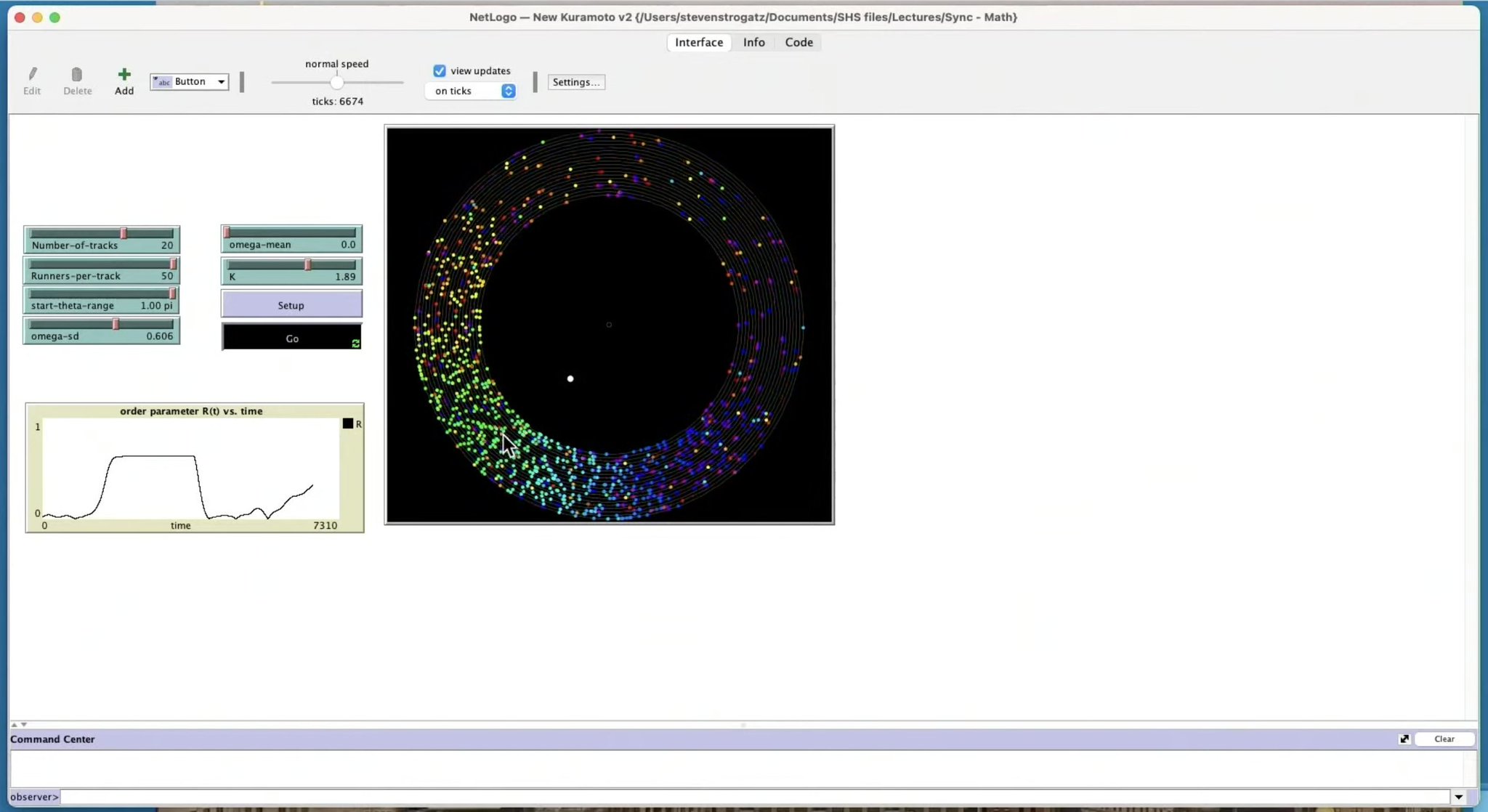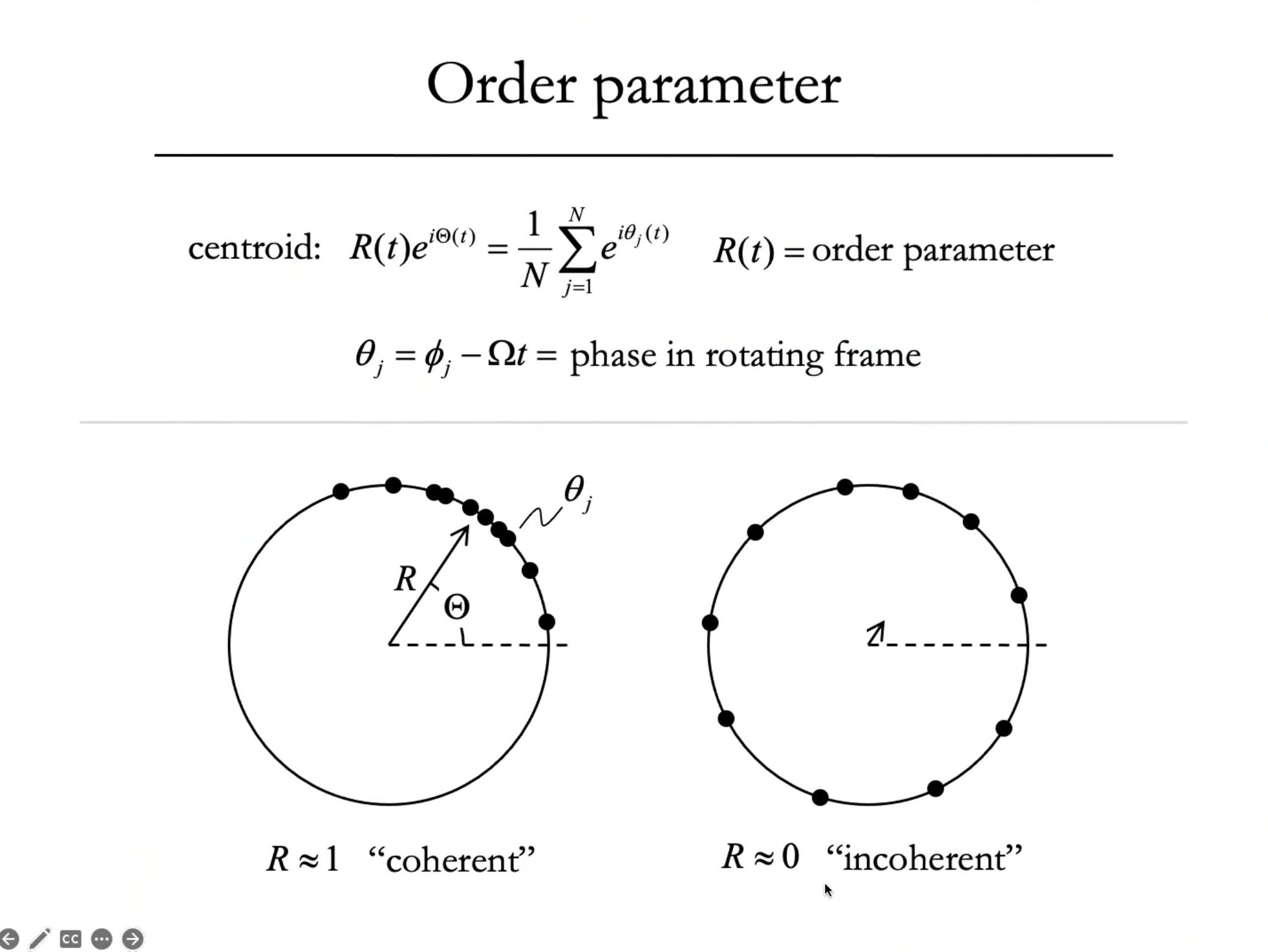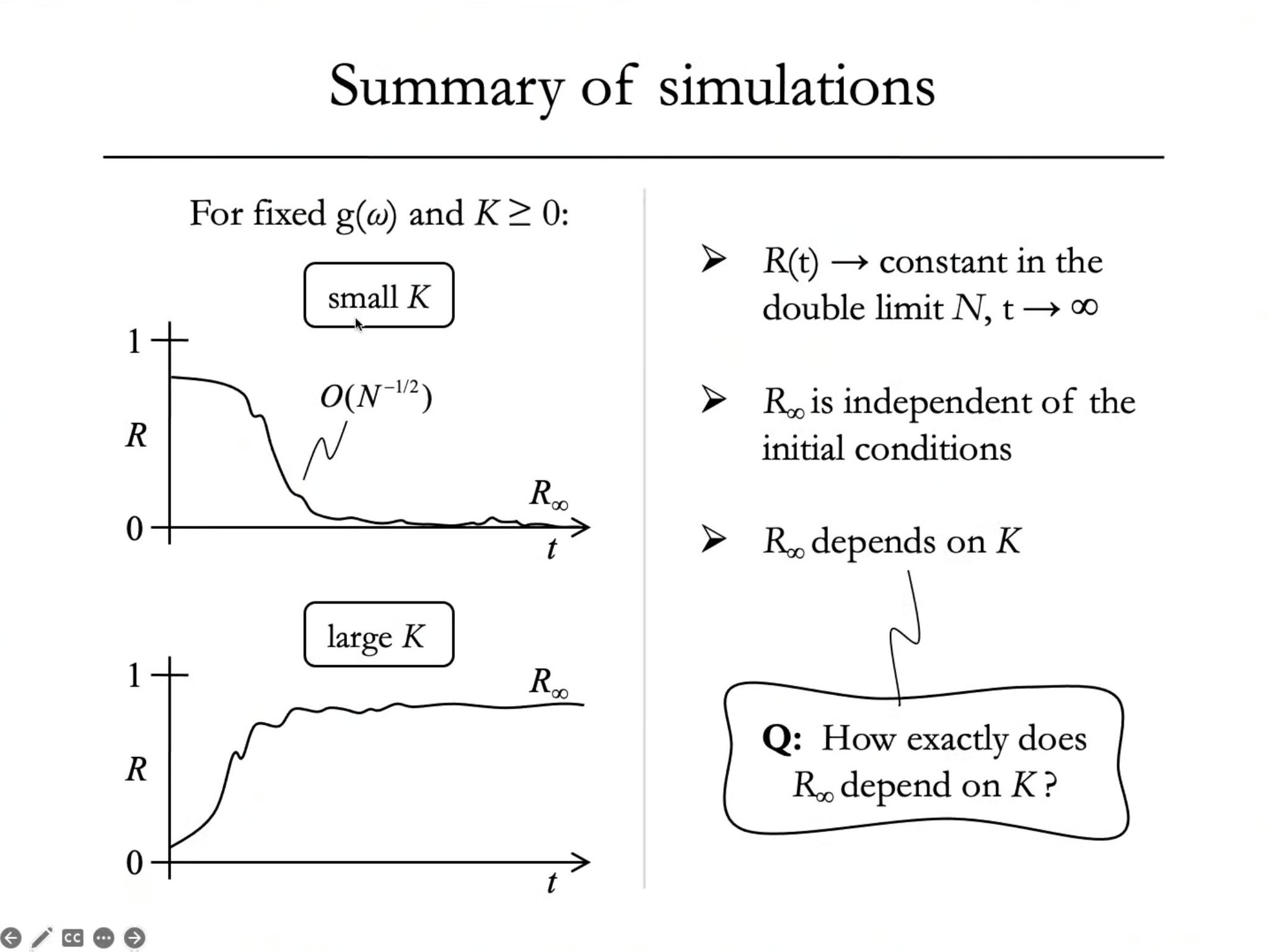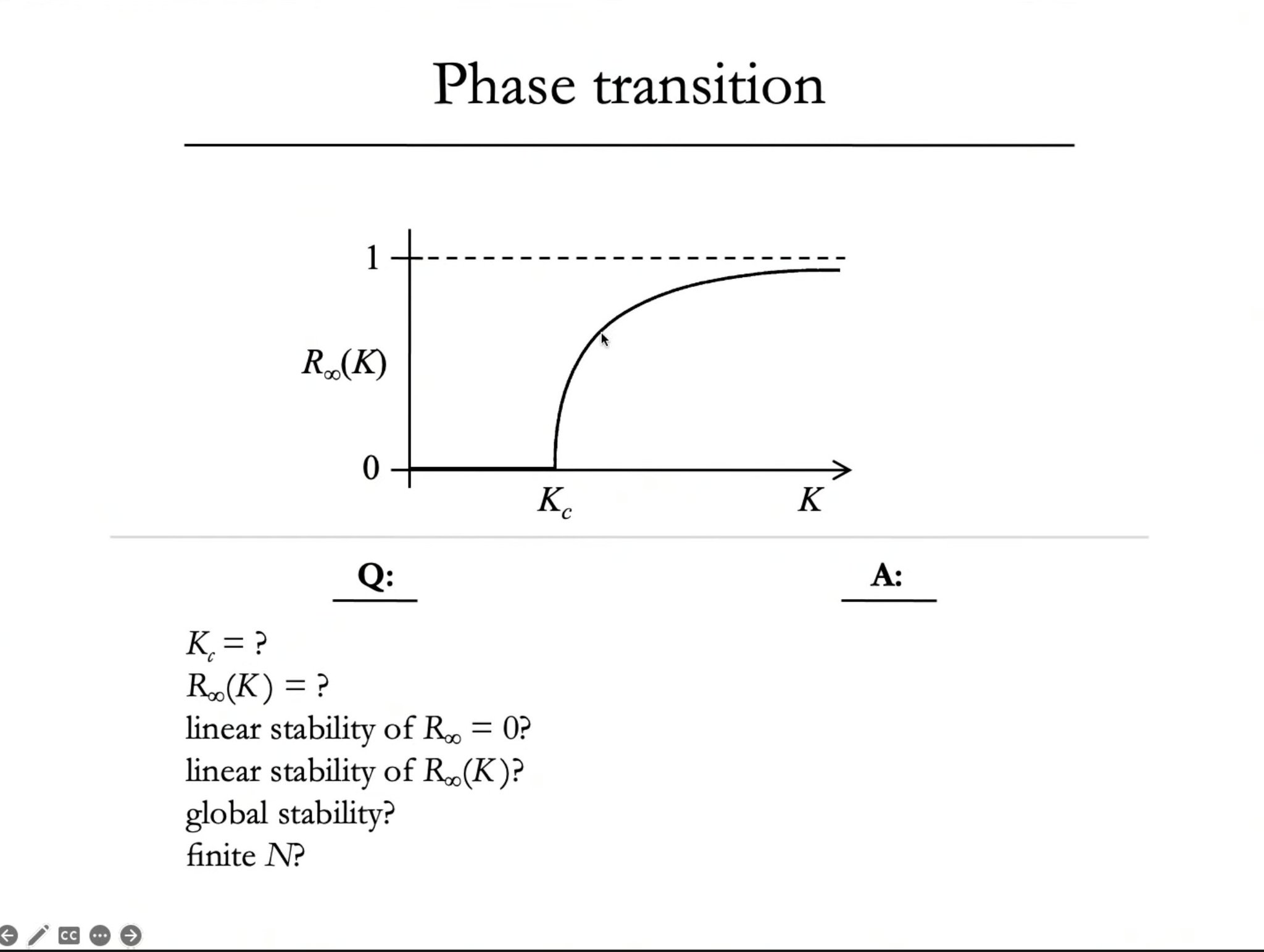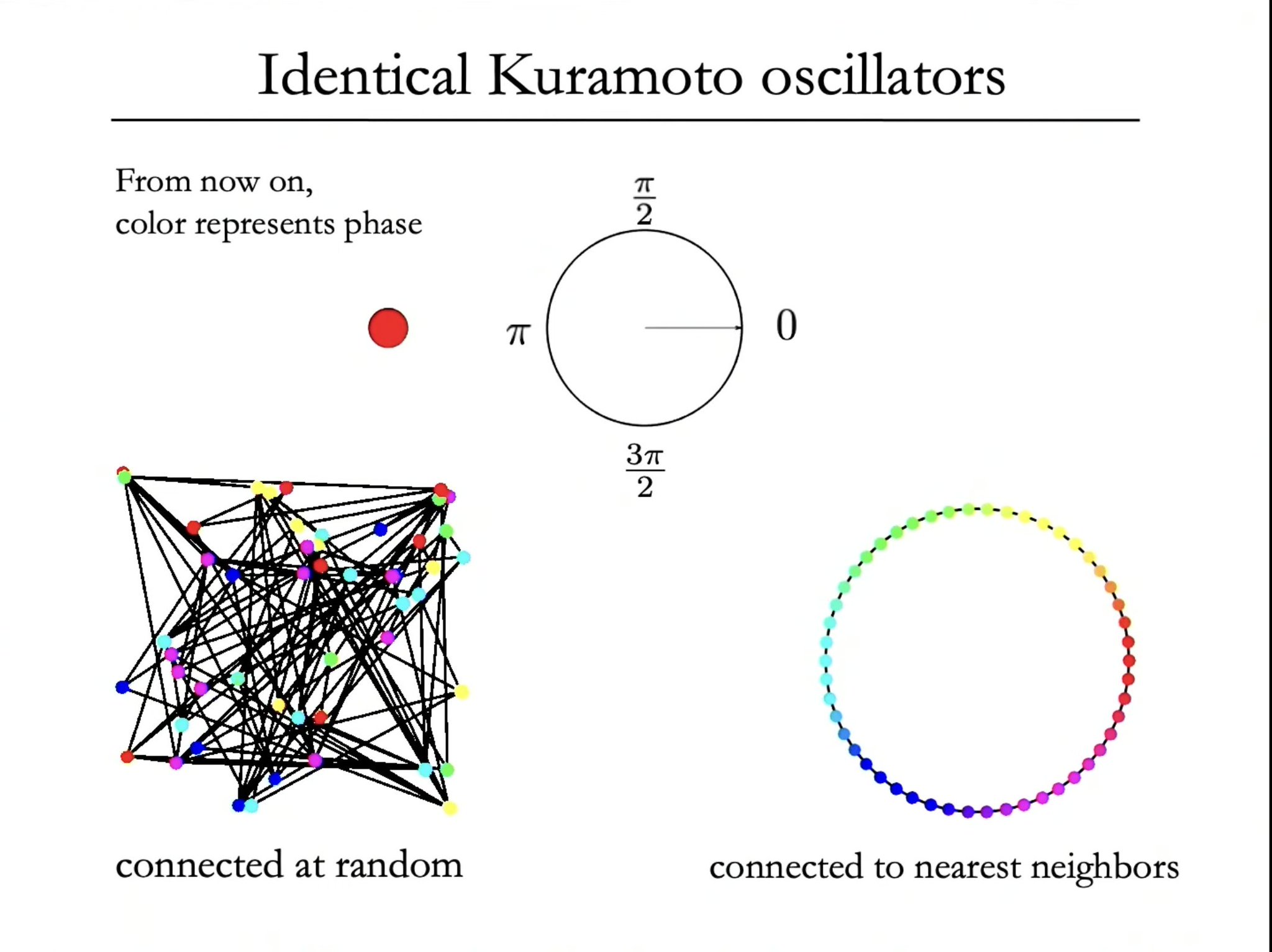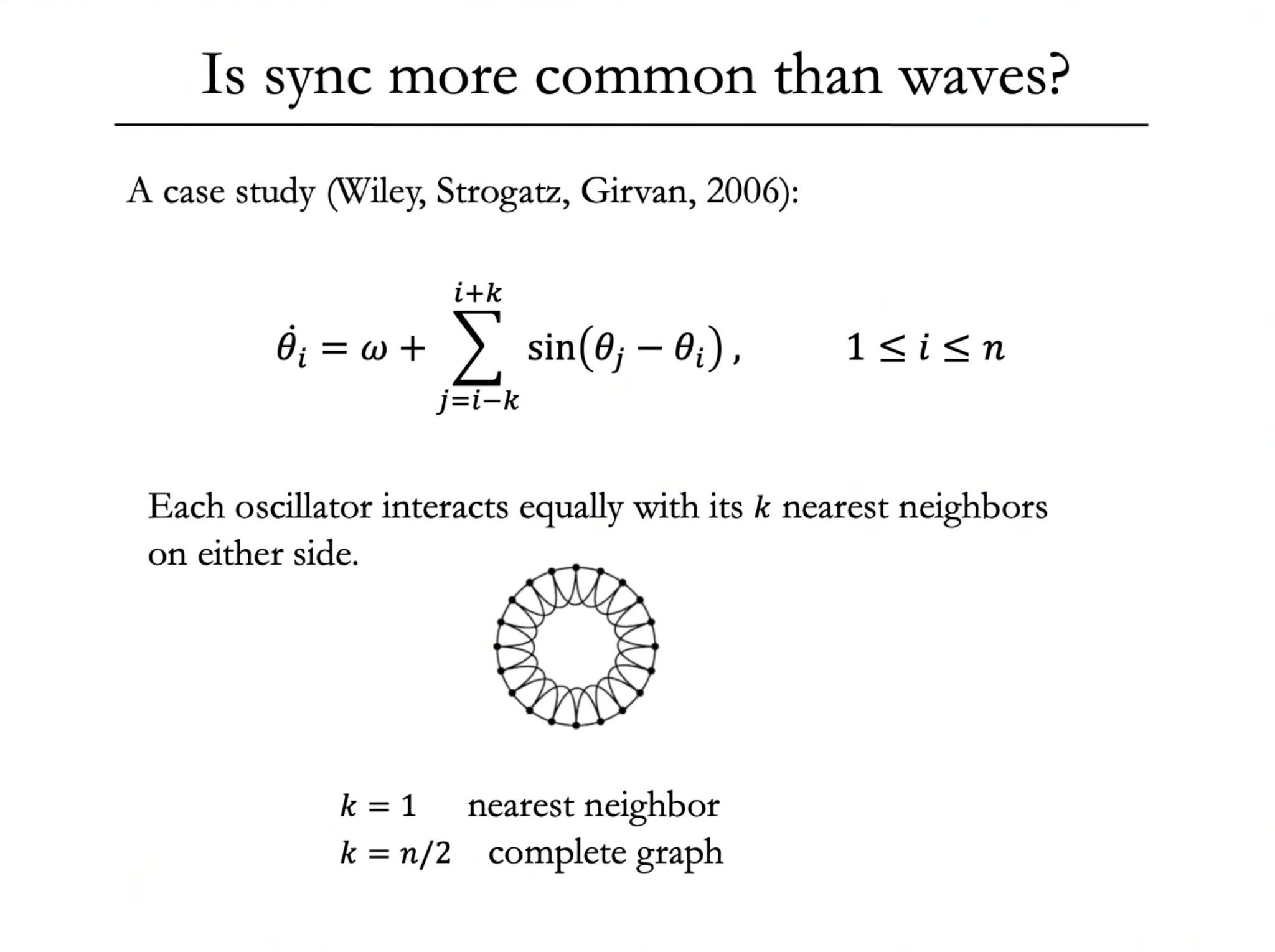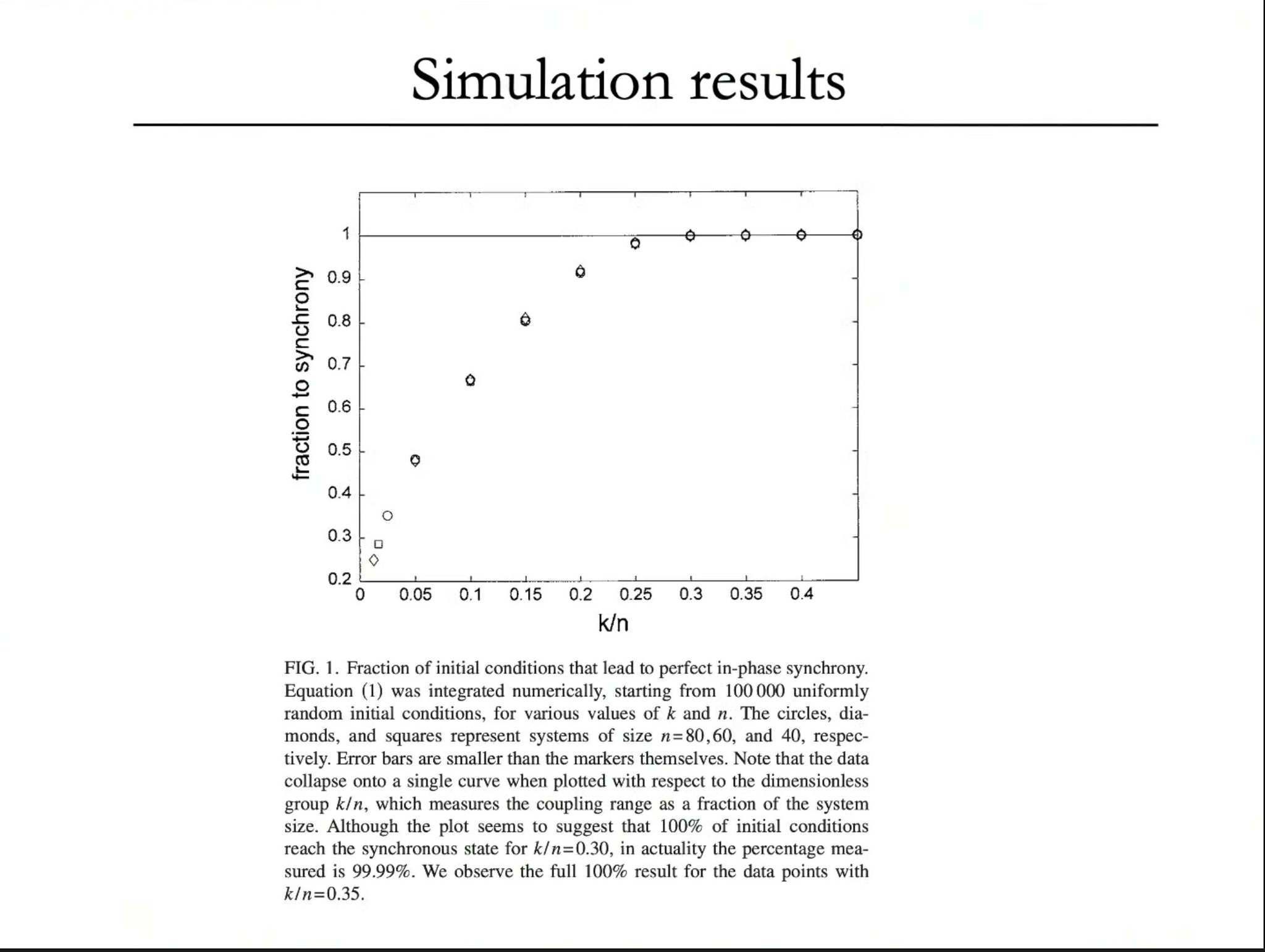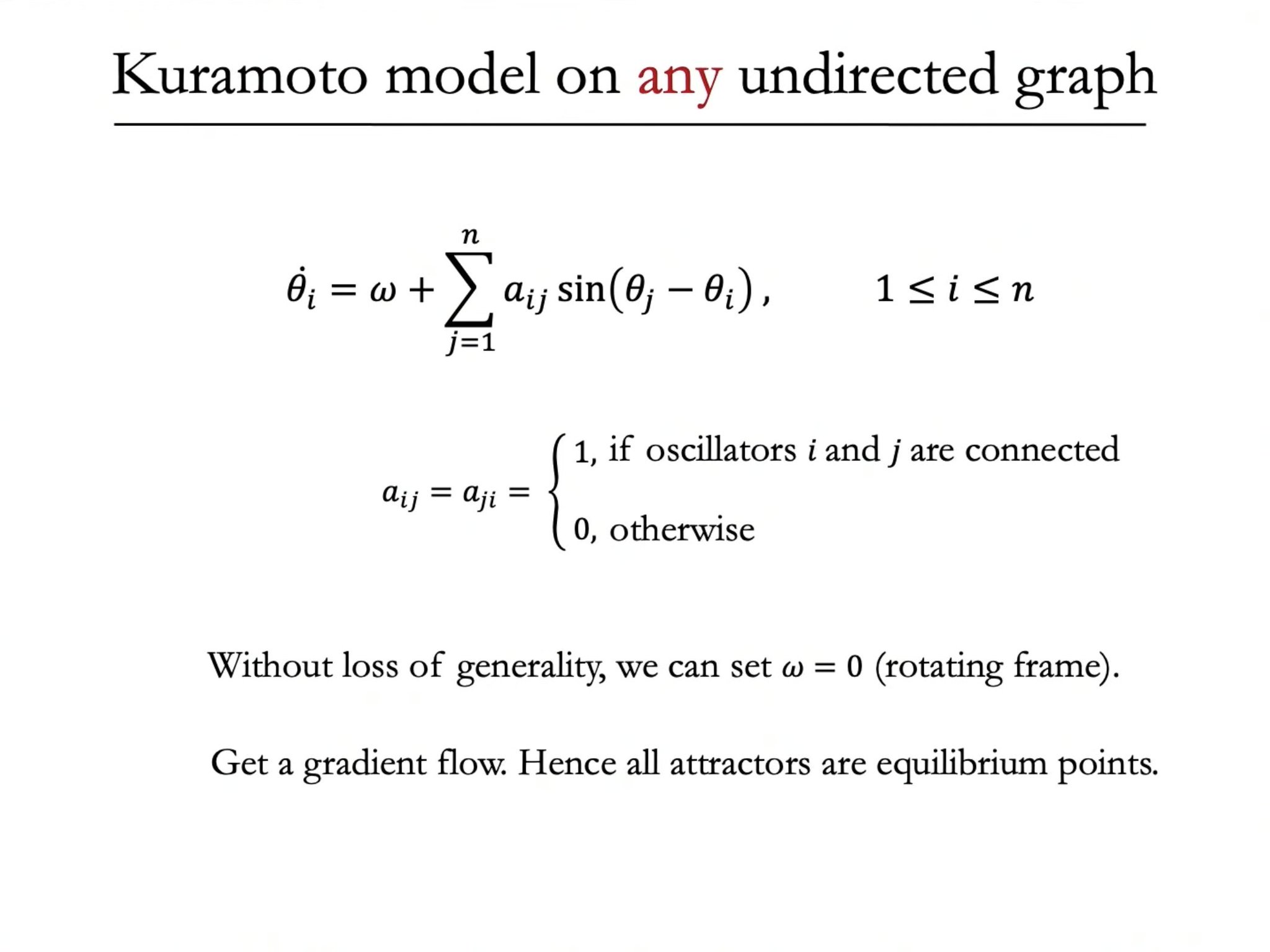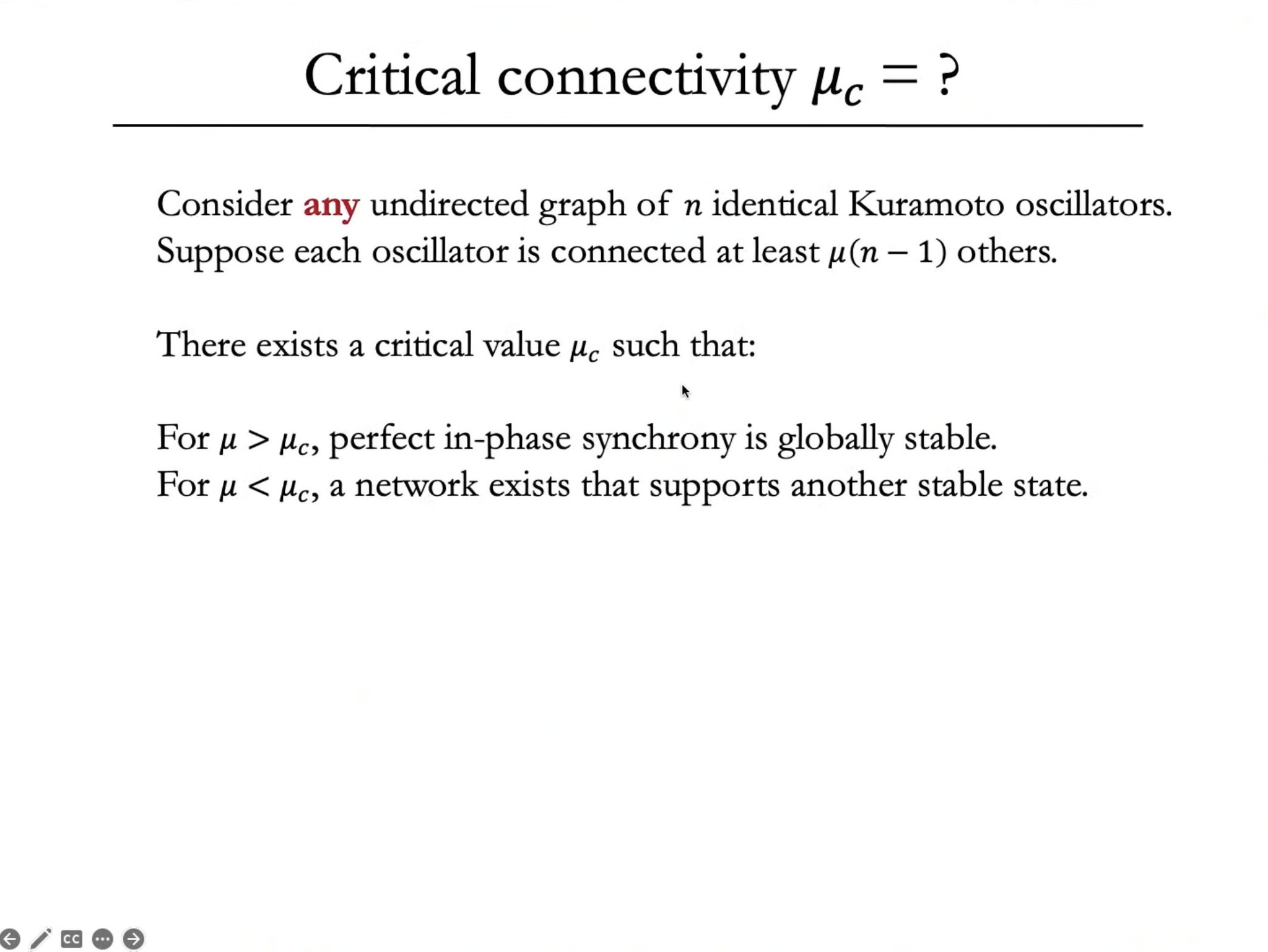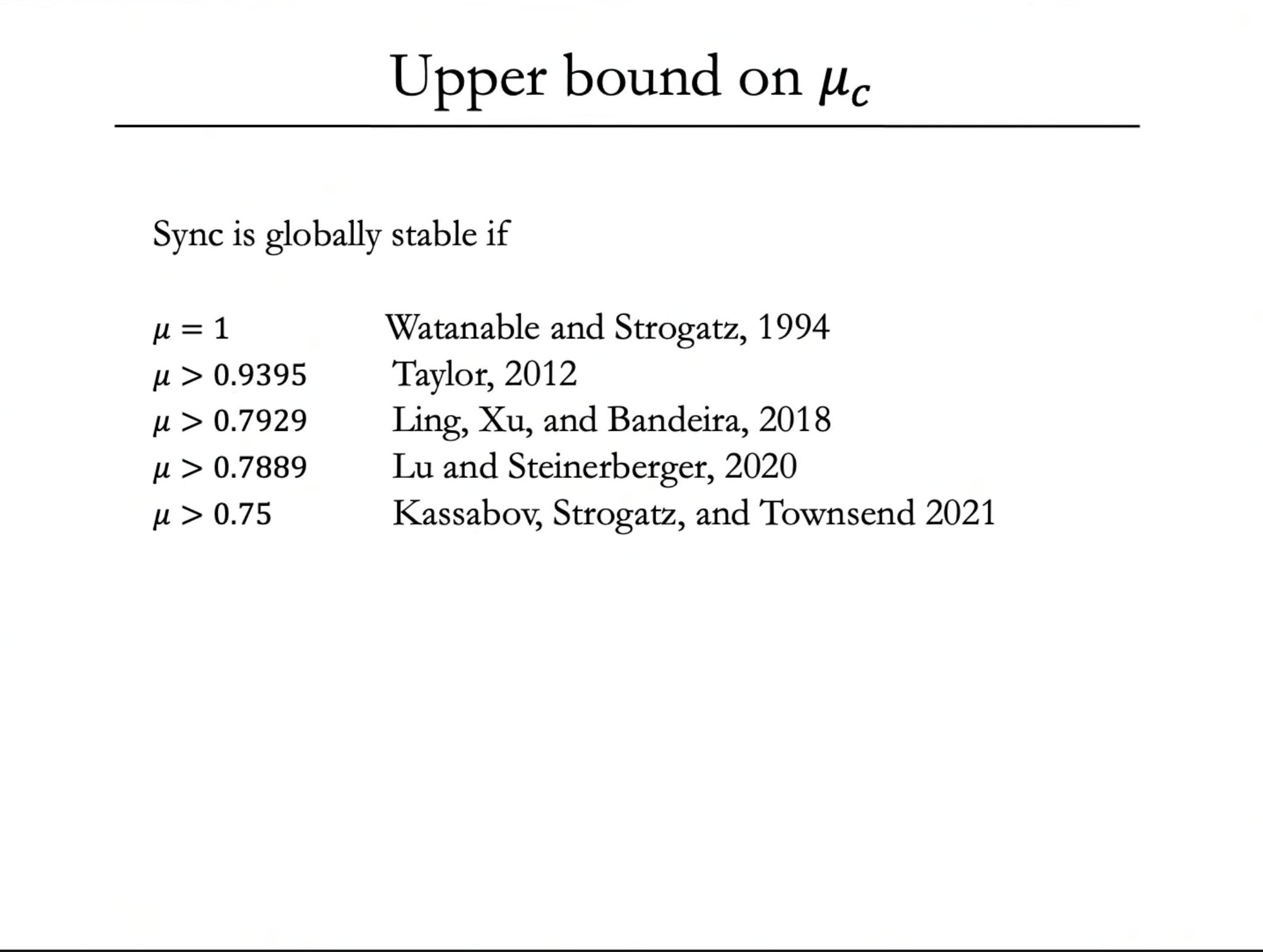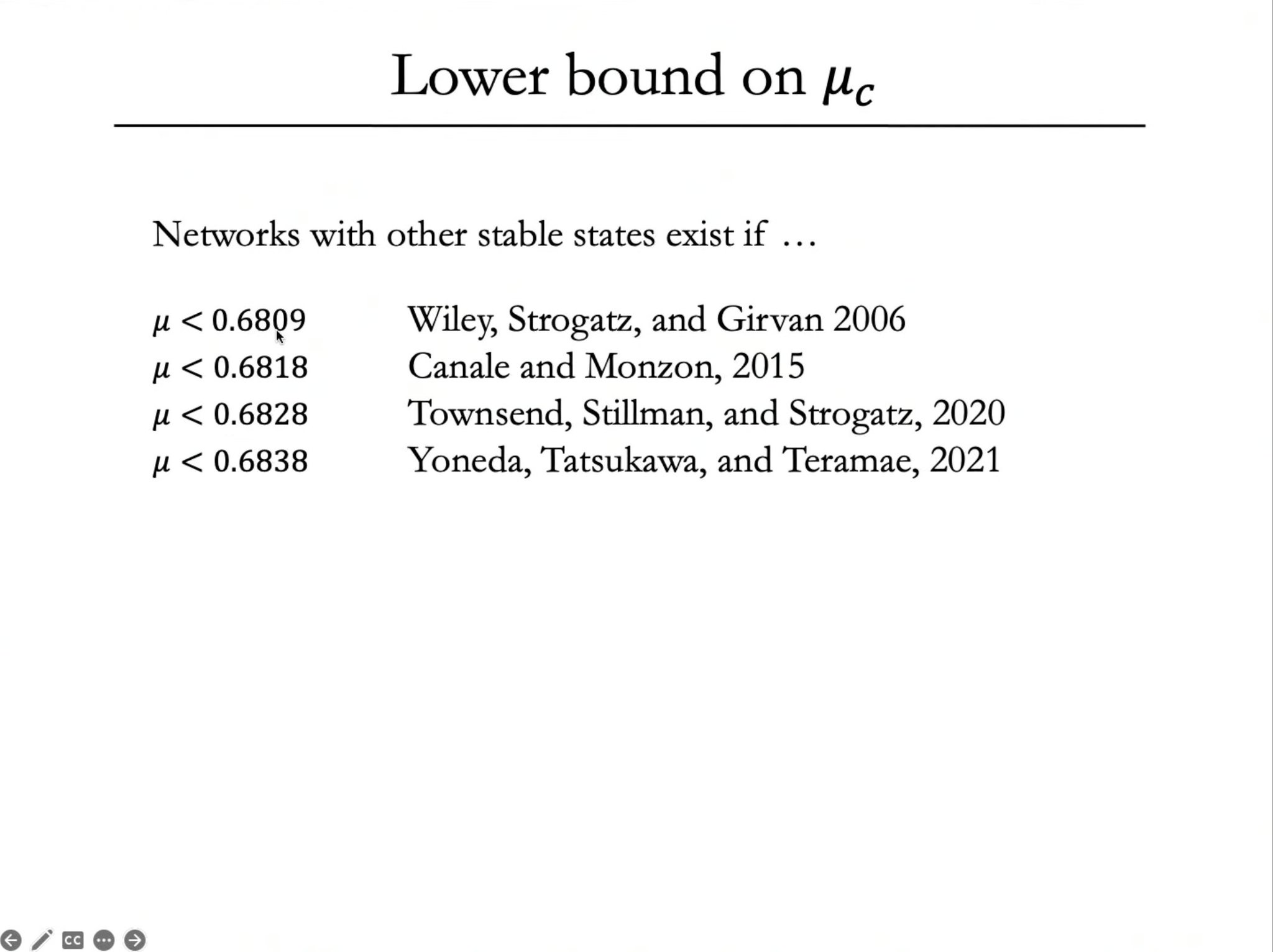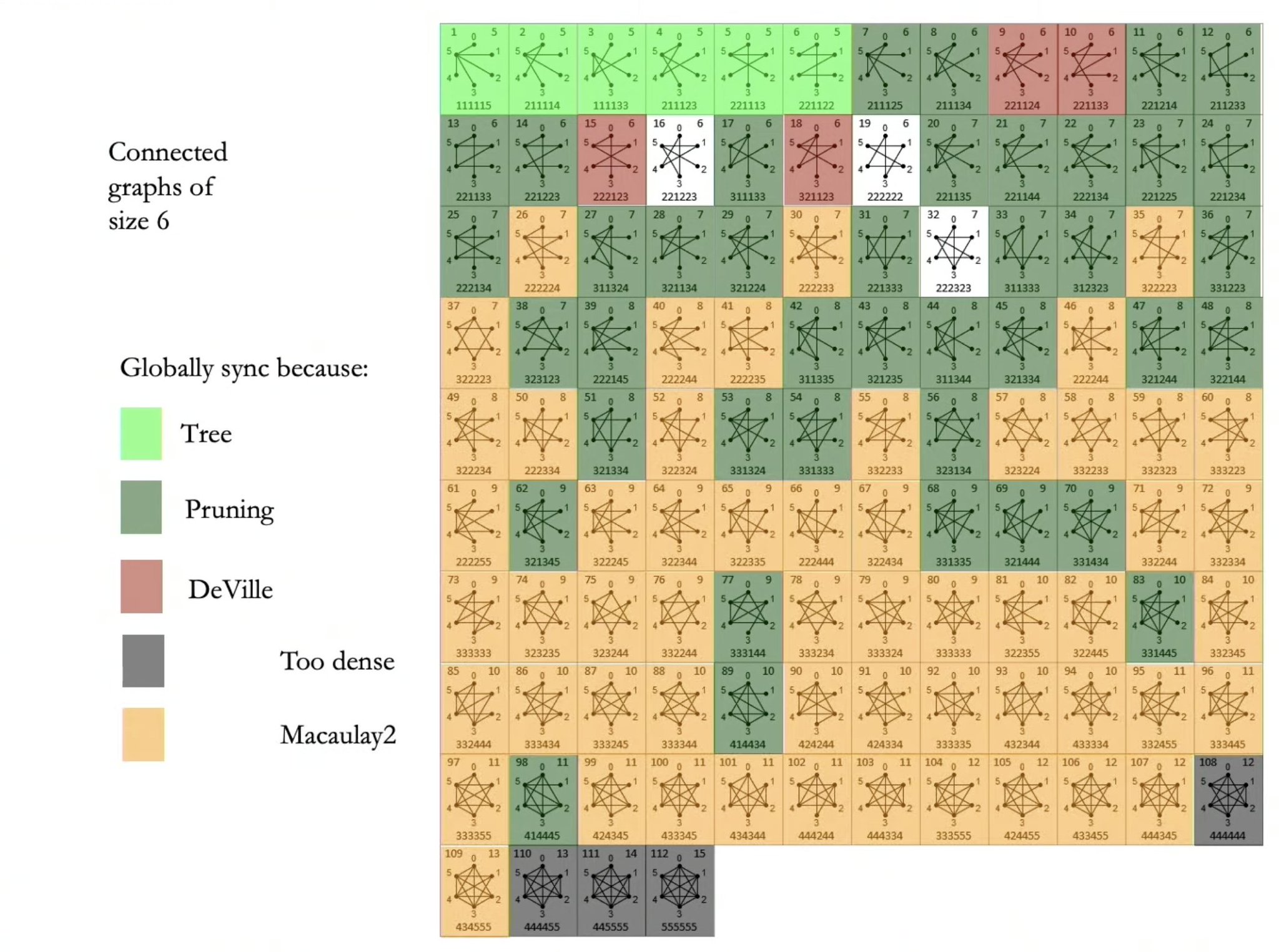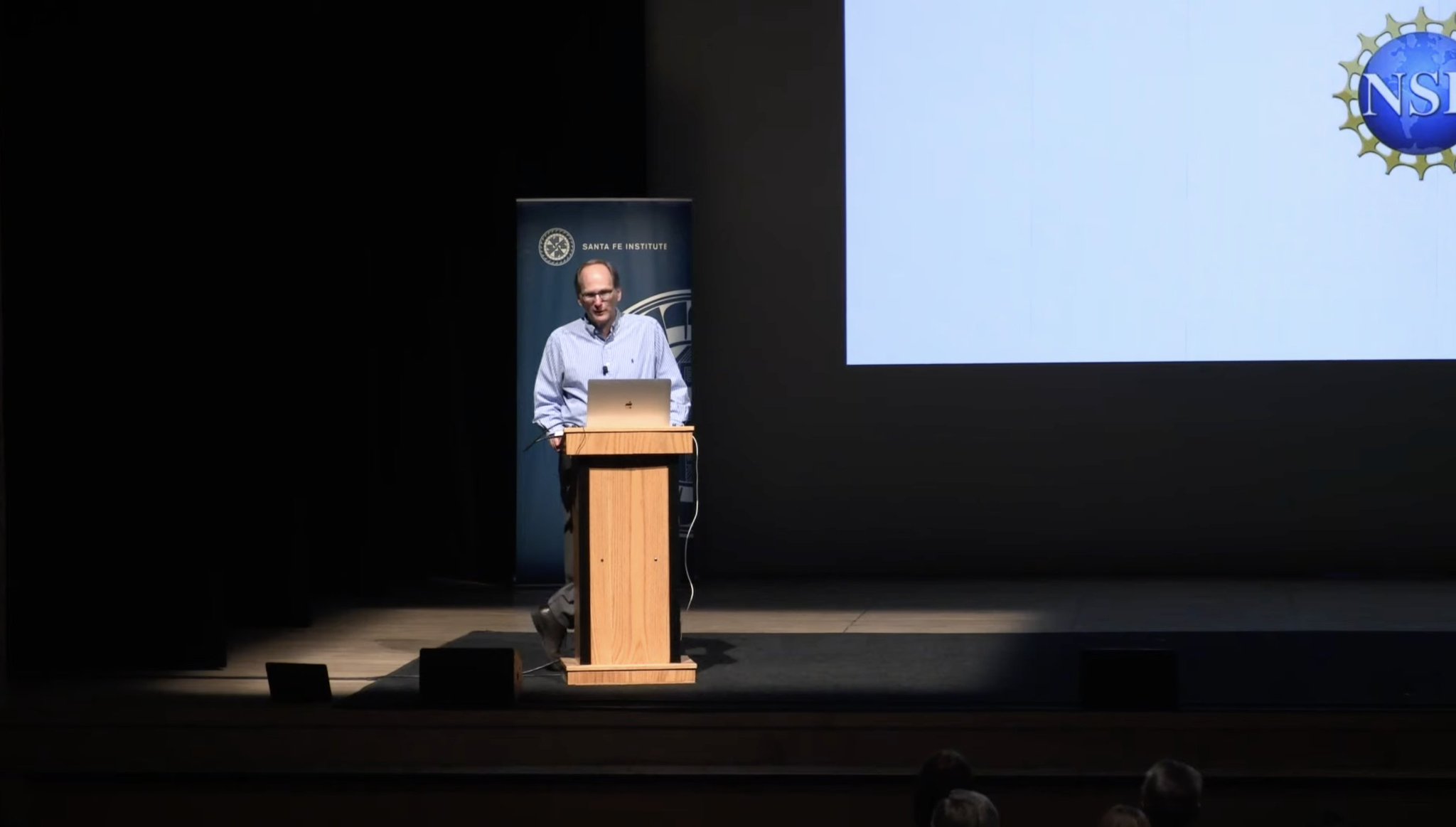Thread by Santa Fe Institute
Thread
Tonight & Tomorrow at 7:30 pm Mountain, join us for Mathematical Stories with @StevenStrogatz — 2022 Ulam Memorial Lectures at @TheLensic + Online.
Stream links:
• The Story of #Calculus
www.youtube.com/watch?v=S1gXA4B8DL0
• The Story of #Sync
www.youtube.com/watch?v=RpU7JrE1uCk
We'll be tweeting!
Stream links:
• The Story of #Calculus
www.youtube.com/watch?v=S1gXA4B8DL0
• The Story of #Sync
www.youtube.com/watch?v=RpU7JrE1uCk
We'll be tweeting!
Stanislaw Ulam Lectures 2022
Part One: "The Story of #Calculus"
by @stevenstrogatz (@Cornell)
Streaming now:
www.youtube.com/watch?v=S1gXA4B8DL0
Follow this 🧵 for our live coverage!
Part One: "The Story of #Calculus"
by @stevenstrogatz (@Cornell)
Streaming now:
www.youtube.com/watch?v=S1gXA4B8DL0
Follow this 🧵 for our live coverage!
"Without #calculus, we wouldn't have radio, television, microwave ovens, or sent astronauts to the moon, or unraveled DNA. To interpret an X-ray diffraction picture, Rosalind Franklin had to use a Fourier transform. It's in ultrasound, it's in GPS...it has made the world modern."
"#RichardFeynman, who worked at @LosAlamosNatLab at the time, was happy to receive #HermanWouk to talk about the origins of #TheBomb. But Wouk was very devout and Feynman was an atheist; they had a lot to talk about. Feynman told Wouk that #calculus is 'The Language God Talks.'"
"In the 1800s scientists like Michael Faraday, Ampere, and Gauss were starting to figure out how electricity and magnetism work. They realized there was an intimate relationship. #JamesClerkMaxwell realized what they were discovering could be written in the language of calculus."
"James Clerk Maxwell predicts from #calculus and physical laws that light is an electromagnetic wave. Soon after, Heinrich Hertz observes them, and then Tesla figures out to transmit them wirelessly, and then Marconi sends messages with them. And all of this comes from calculus."
"I find this really bizarre: that we, with our puny primate logic, have managed to figure out how the universe really works. This is why #calculus matters, at least from one point of view."
- @stevenstrogatz
- @stevenstrogatz
"What #calculus 'wants' is to make hard problems simpler. It 'gets what it wants' by slicing hard problems into smaller pieces...slicing and slicing ad infinitum, until what's left is an infinite number of infinitesimal pieces. The hard part is putting the pieces back together."
"We think at some level that matter can't be split farther. And not just matter, but time & space themselves. Once quantum mechanics & gravity are unified properly, there's a belief there will be a smallest unit of time & space. Our best understanding is that calculus is a lie."
"#Pi is not a creature of #geometry. Pi is a creature of #calculus."
- @stevenstrogatz (@cornell)
Watch "The Story of Calculus," streaming now:
www.youtube.com/watch?v=S1gXA4B8DL0
- @stevenstrogatz (@cornell)
Watch "The Story of Calculus," streaming now:
www.youtube.com/watch?v=S1gXA4B8DL0
"#Curves are hard. We had to get rid of the curves and #calculate with straight #lines. And that's the genius of #Archimedes and the other #mathematicians of ancient #Greece."
"Curves are the key to the representation of data."
"#UsainBolt broke the world record with 9.8s. How fast COULD he have run? We can figure this out with #math. You can fit a smooth curve through the dots with #LinearRegression."
"Calculus is capturing the trend of reality."
"#UsainBolt broke the world record with 9.8s. How fast COULD he have run? We can figure this out with #math. You can fit a smooth curve through the dots with #LinearRegression."
"Calculus is capturing the trend of reality."
"You've really got to think about #calculus as world culture. There were Indian mathematicians, [Arab] mathematicians...Europeans put on the finishing touches, but that's just the culmination of 2000 years of great work."
- @stevenstrogatz in the Q&A
www.youtube.com/watch?v=S1gXA4B8DL0
- @stevenstrogatz in the Q&A
www.youtube.com/watch?v=S1gXA4B8DL0
It begins!
@stevenstrogatz (@Cornell)
at @TheLensic right now:
"He's one of the most gifted science communicators of our time."
- @MelMitchell1
www.youtube.com/watch?v=RpU7JrE1uCk
@stevenstrogatz (@Cornell)
at @TheLensic right now:
"He's one of the most gifted science communicators of our time."
- @MelMitchell1
www.youtube.com/watch?v=RpU7JrE1uCk
The "odd sympathy" of pendulum clocks:
@stevenstrogatz explains the #history of #synchronization
www.youtube.com/watch?v=RpU7JrE1uCk
@stevenstrogatz explains the #history of #synchronization
www.youtube.com/watch?v=RpU7JrE1uCk
"The bridge started wobbling. 'Of course! Soldiers are told to break step as they march across footbridges.' But what happened on the Millennium Bridge was different. It moved *sideways*."
"If you go to the Millennium Bridge today, it doesn't do this. ... And what a pity."
"If you go to the Millennium Bridge today, it doesn't do this. ... And what a pity."
"We also have, sometimes, unfortunate phenomena, like massive synchronization of the brain that leads to seizures. Sync is not always a good thing."
#fireflies #pacemakers #neurons #bridges #sync
#fireflies #pacemakers #neurons #bridges #sync
A parade of hypotheses for #firefly #synchrony.
"Scientists have known for at least twenty years that #fireflies synchronize in North America...but the people living there knew much longer."
cc #LynnFaust + @OritPeleg
"Scientists have known for at least twenty years that #fireflies synchronize in North America...but the people living there knew much longer."
cc #LynnFaust + @OritPeleg
"How groups get into sync is a kind of math problem."
"Think of a biological oscillator like a runner on a circular track. If you have a group, they're like a club. How much are they willing to make adjustments to their different speeds?"
"Each oscillator listens to the average."
"Think of a biological oscillator like a runner on a circular track. If you have a group, they're like a club. How much are they willing to make adjustments to their different speeds?"
"Each oscillator listens to the average."
"The big discovery of Winfree's work was that it doesn't just get more #synchronized as the group becomes more homogeneous. There's a #PhaseTransition."
"Winfree had to flip space & time to see that synchronization was a phase transition. That got the #physicists all activated."
"Winfree had to flip space & time to see that synchronization was a phase transition. That got the #physicists all activated."
"Effectively, everybody stays on their limit cycle just like everybody stays on their track."
"Kuramoto allows for any network structure...that is way too complicated. So he chose the most beautiful possibilities...of doing the mean field."
"Kuramoto allows for any network structure...that is way too complicated. So he chose the most beautiful possibilities...of doing the mean field."
At high-enough coupling K, "The intrinsically fastest ones are leading & the intrinsically slowest ones are following. If any of you have ever walked a reluctant dog, you know what I mean."
"Along the phase transition curve, there's a synchronized group & a desynchronized group."
"Along the phase transition curve, there's a synchronized group & a desynchronized group."
"The question is, 'How *exactly* does it depend on the amount of #coupling?"
"This is all assuming an infinite number of #oscillators. For finite n, we don't have a good answer for that."
"This is all assuming an infinite number of #oscillators. For finite n, we don't have a good answer for that."
"What happens if you do the problem on a network? In the Kuramoto model, everyone is coupled to everyone, but that's not very realistic. If you're a firefly or a neuron, you're coupled to your neighbors."
Random networks sync fast.
Nearest-neighbor "will chase its tail forever."
Random networks sync fast.
Nearest-neighbor "will chase its tail forever."
"How common are waves versus synchrony?"
"@GirvanMichelle's simulations showed that the magic number for this system was about 34% on either side. You would always fall into sync."
"When is there a network that can support some kind of long-term [won't sync] behavior?"
"@GirvanMichelle's simulations showed that the magic number for this system was about 34% on either side. You would always fall into sync."
"When is there a network that can support some kind of long-term [won't sync] behavior?"
"We have a reason to think it's a perfect three-quarters. We don't have a proof. But that's just an upper bound. Below this..."
"Between 0.68 and 0.75 is a lot. We're on a hunt for this magic number."
"Between 0.68 and 0.75 is a lot. We're on a hunt for this magic number."
"We have this gap between the best-known upper bound and the best-known lower bound. There is this enormous gulf. We're stumped. And it's exciting!"
- @stevenstrogatz
#sync #graphs #networks #math
- @stevenstrogatz
#sync #graphs #networks #math
"By thinking about theory, and divorced from reality, you can still do something good."
+
"The math has gone off on its own. It needs to connect to reality."
=
@stevenstrogatz
+
"The math has gone off on its own. It needs to connect to reality."
=
@stevenstrogatz
@stevenstrogatz "I want everyone to learn computers AND calculus. I want it all. But what about the public schoolteacher who has only a certain amount of time? A lot of people say we should teach more data science. Shouldn't they learn more about risk & uncertainty? Talk about complex systems."
